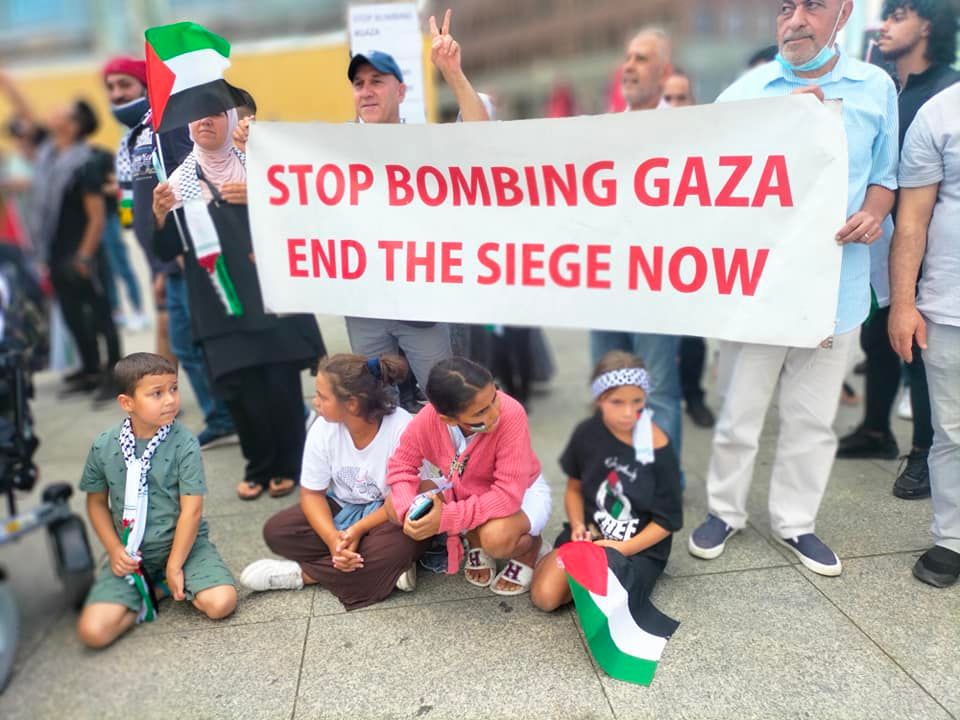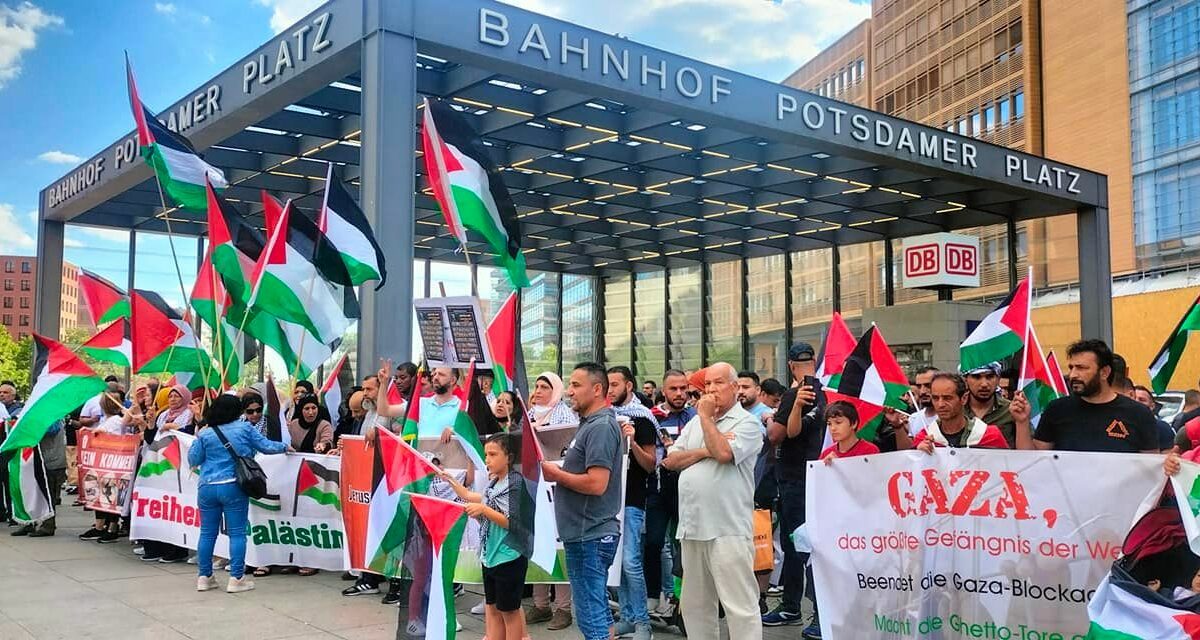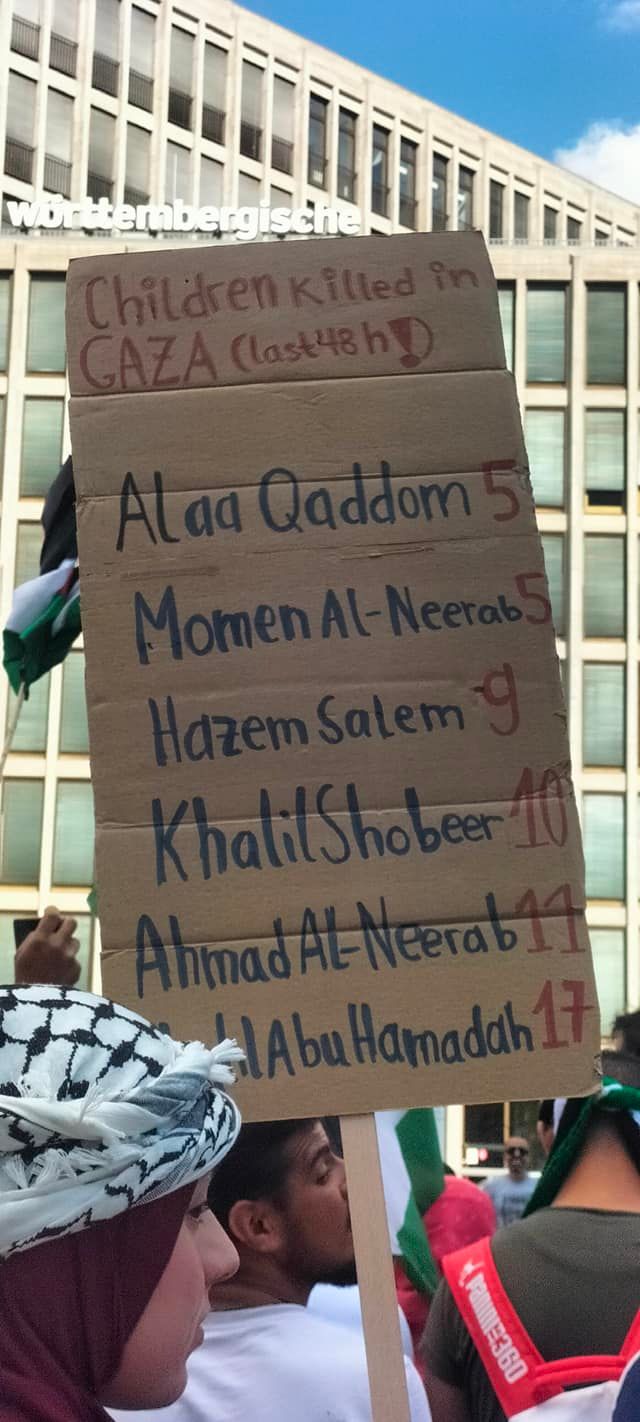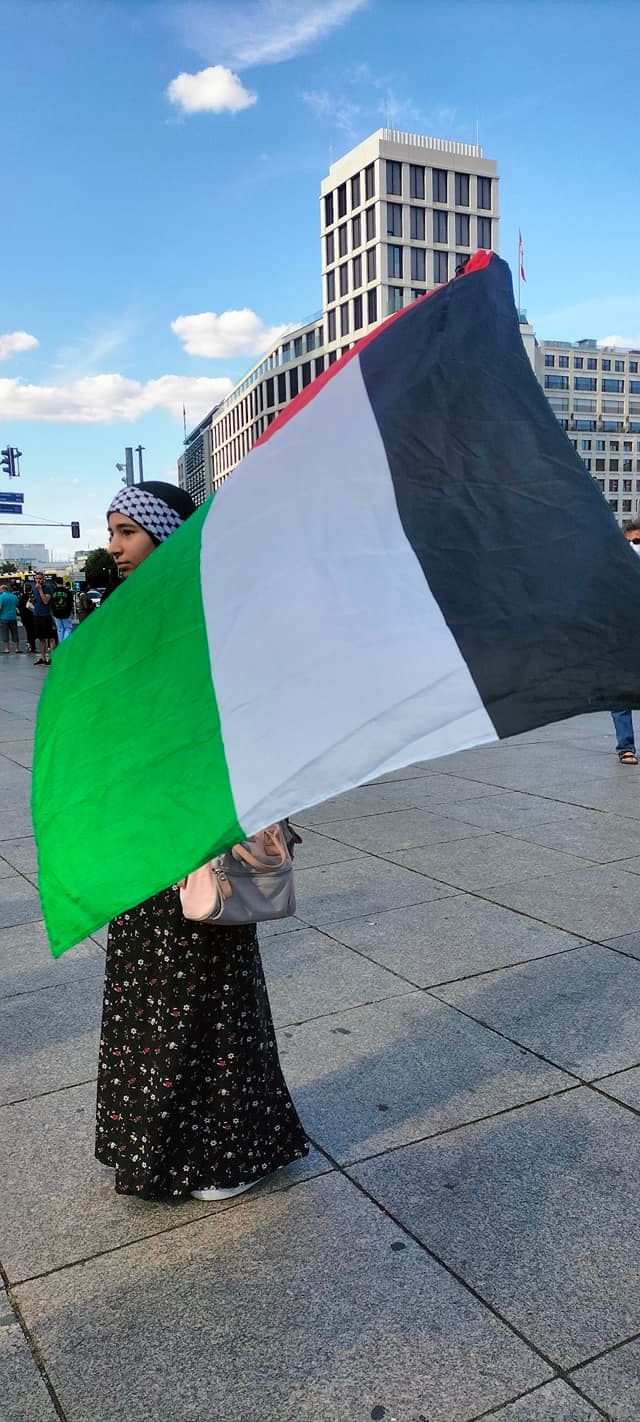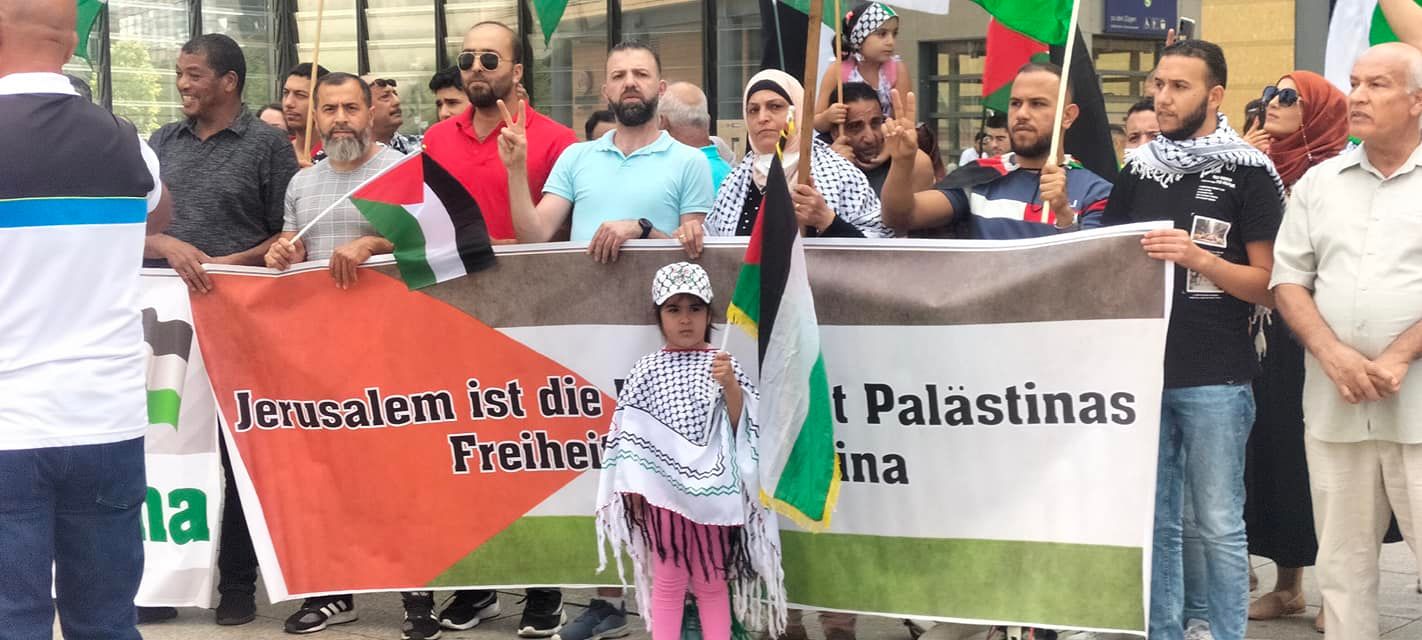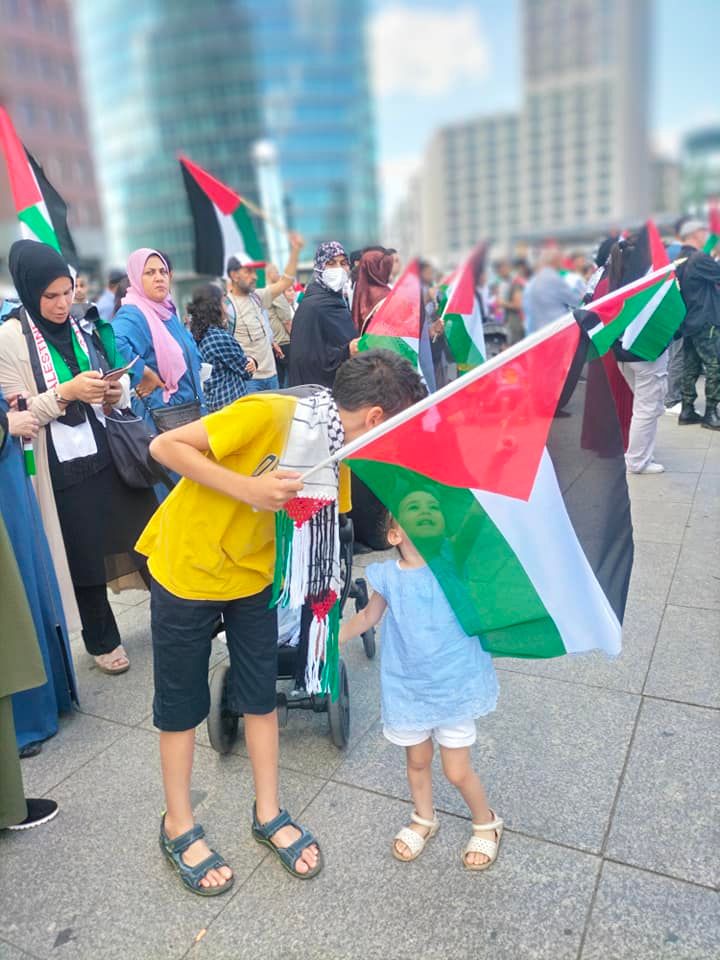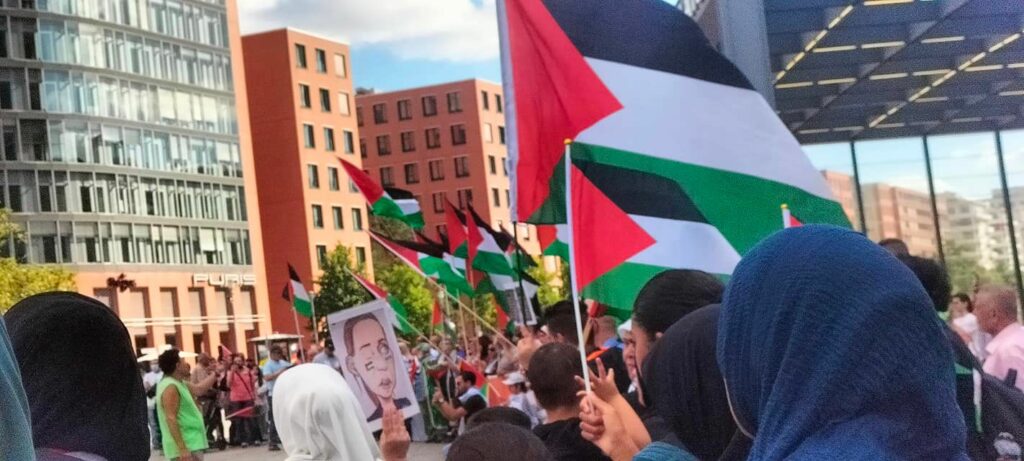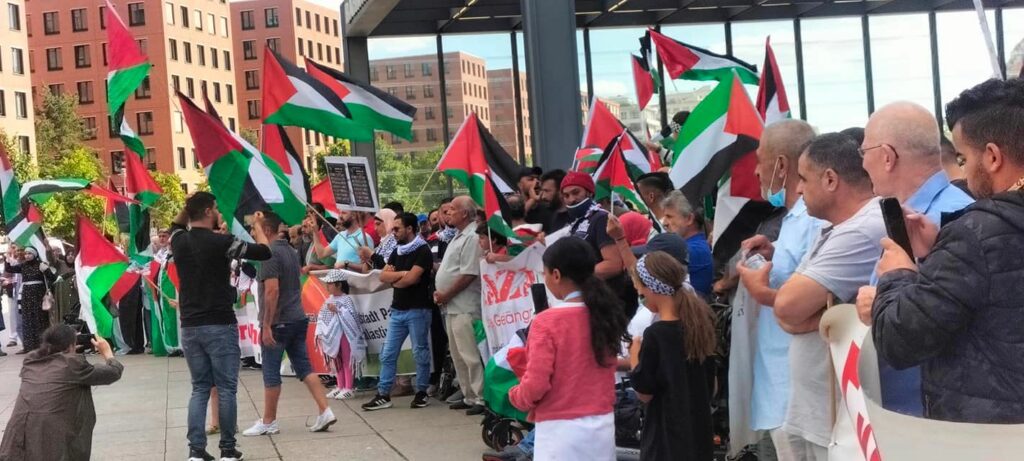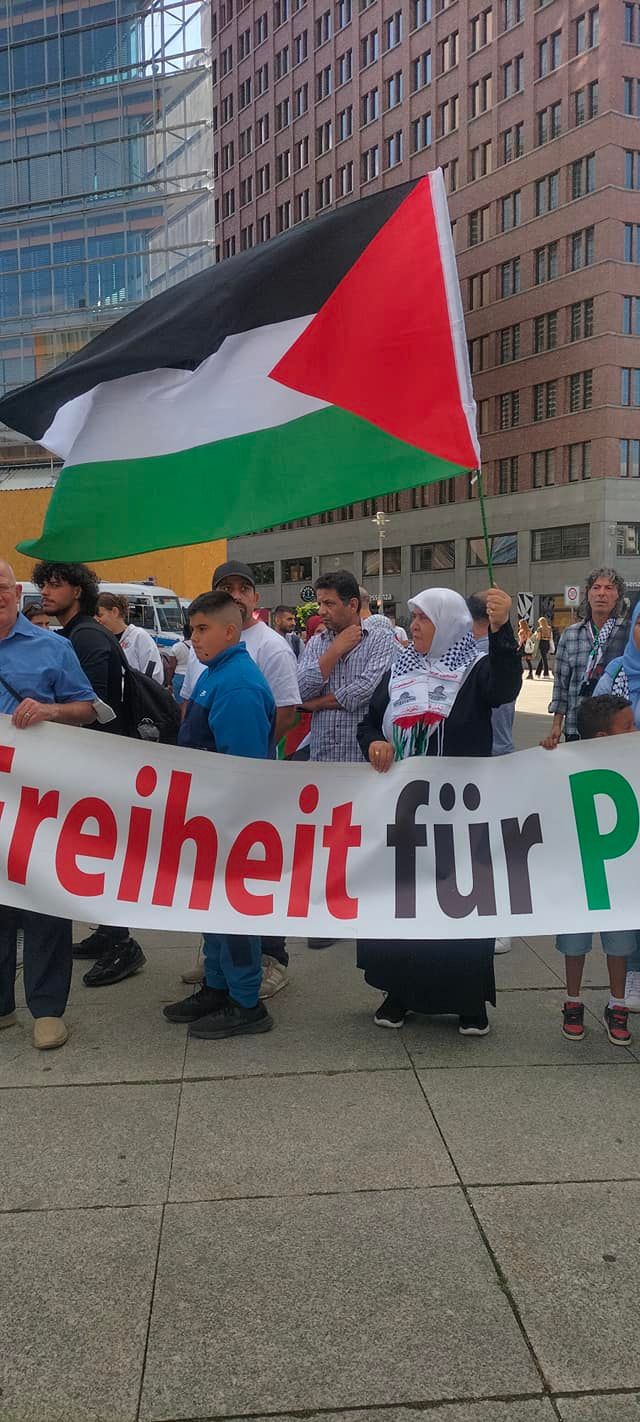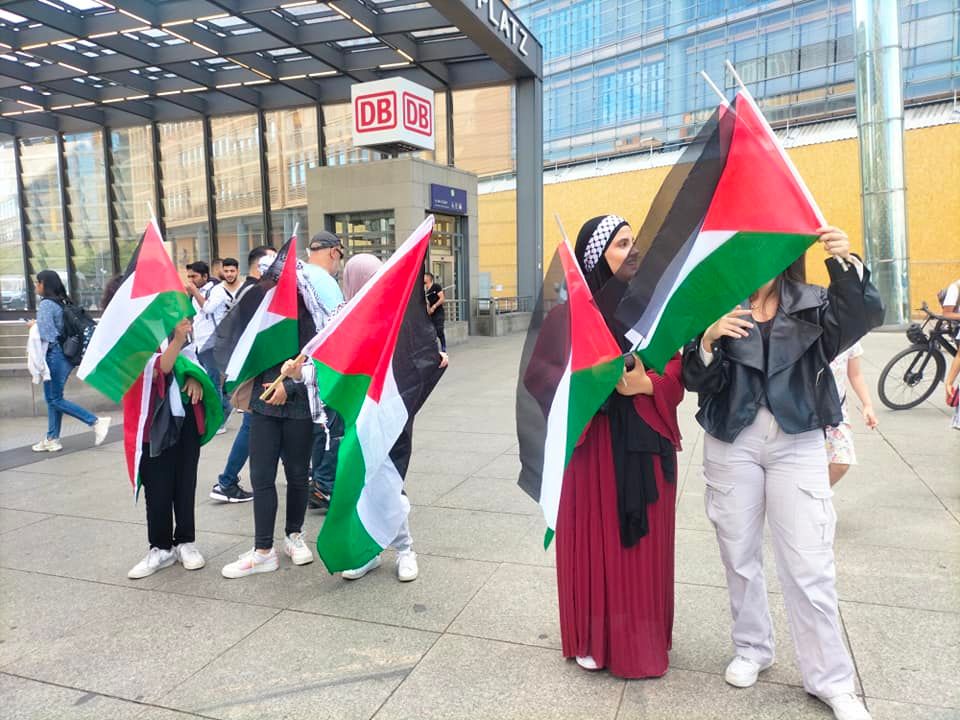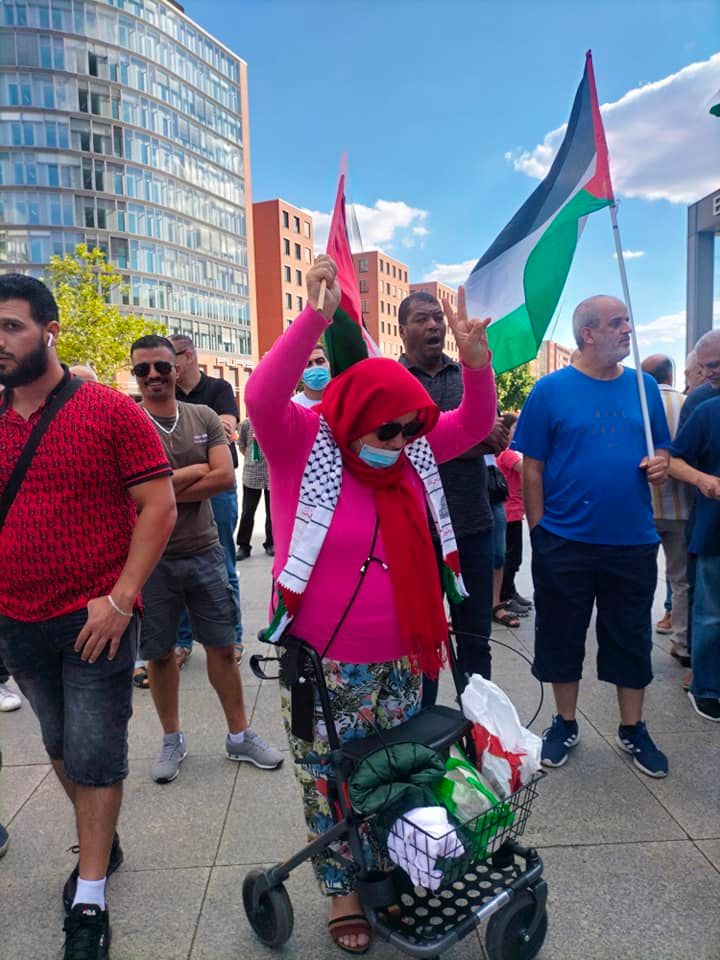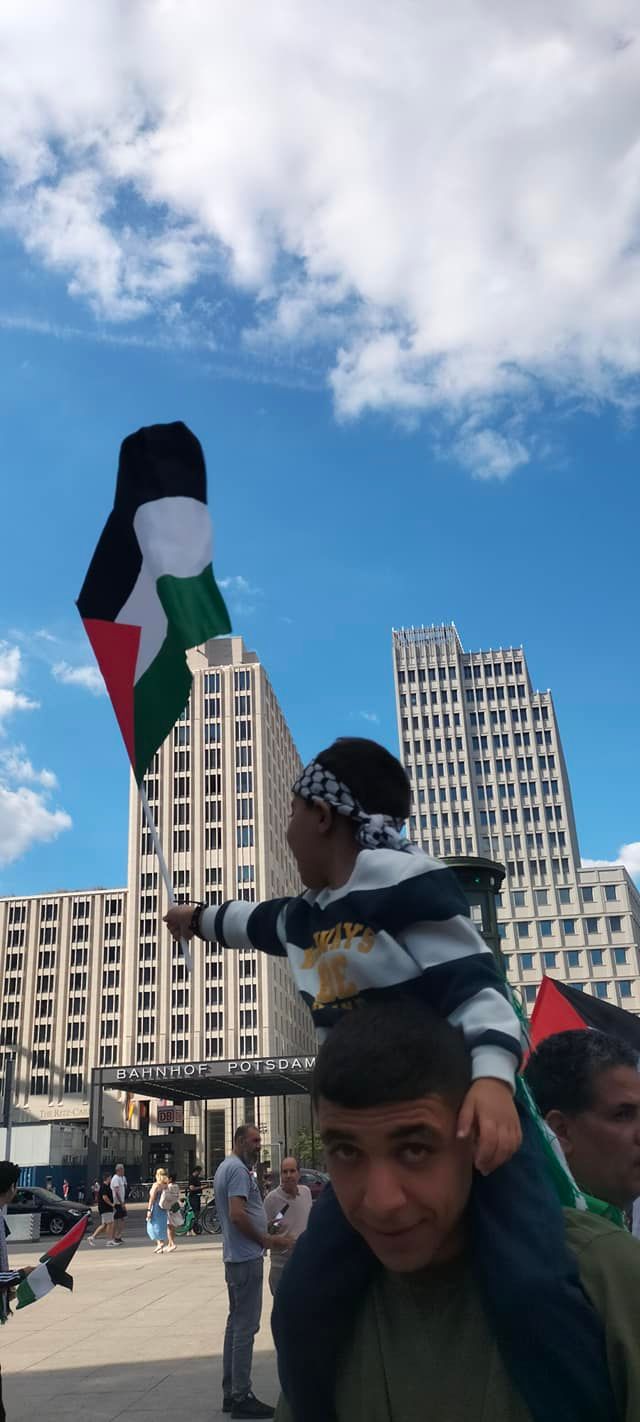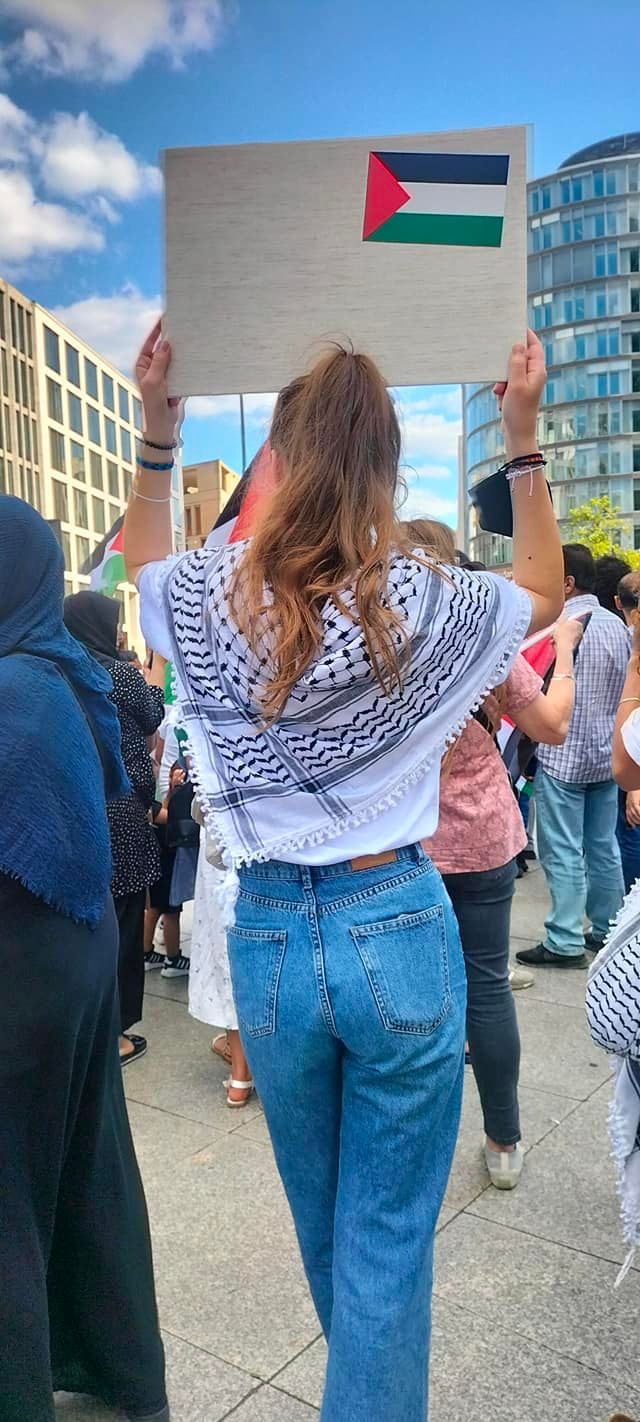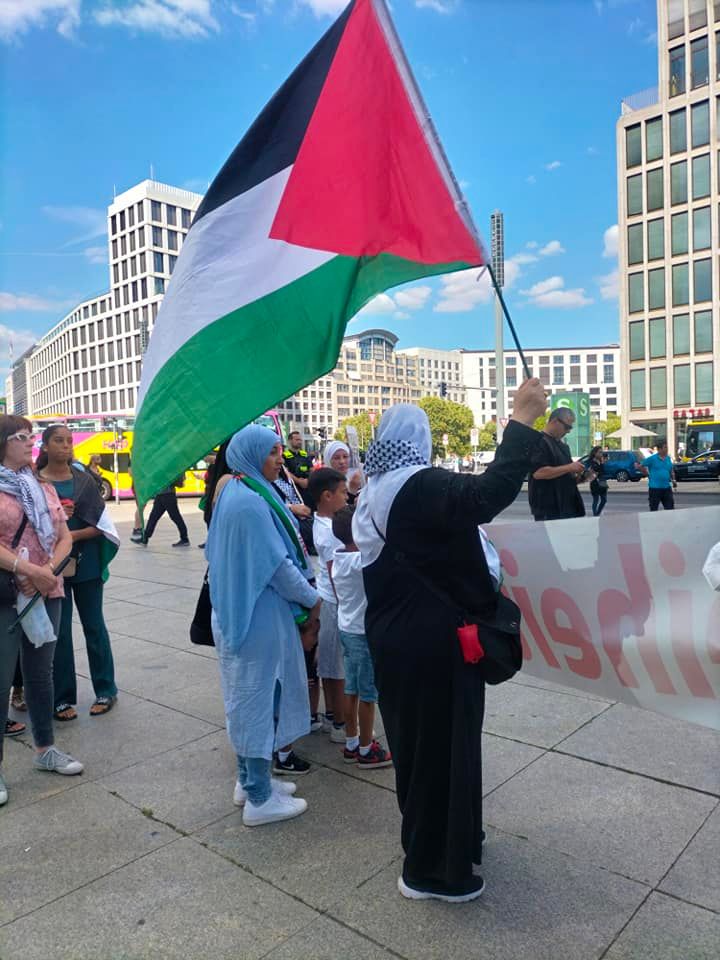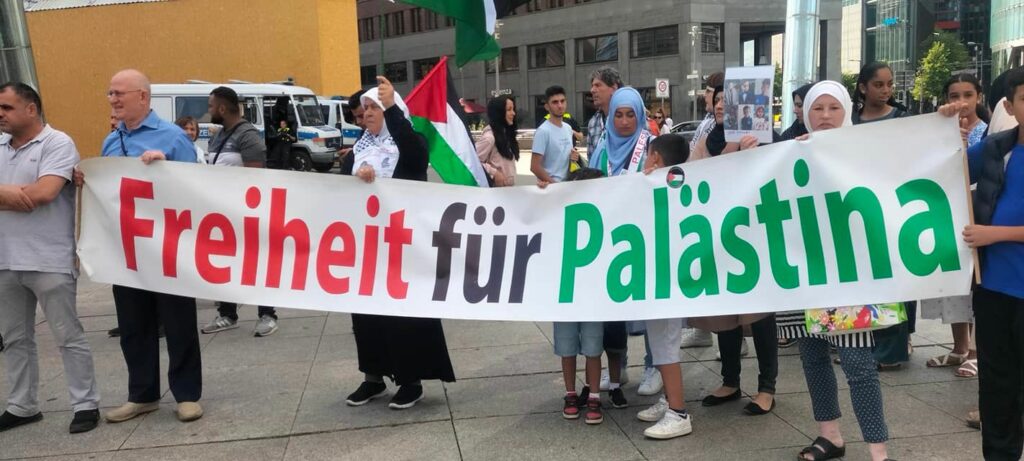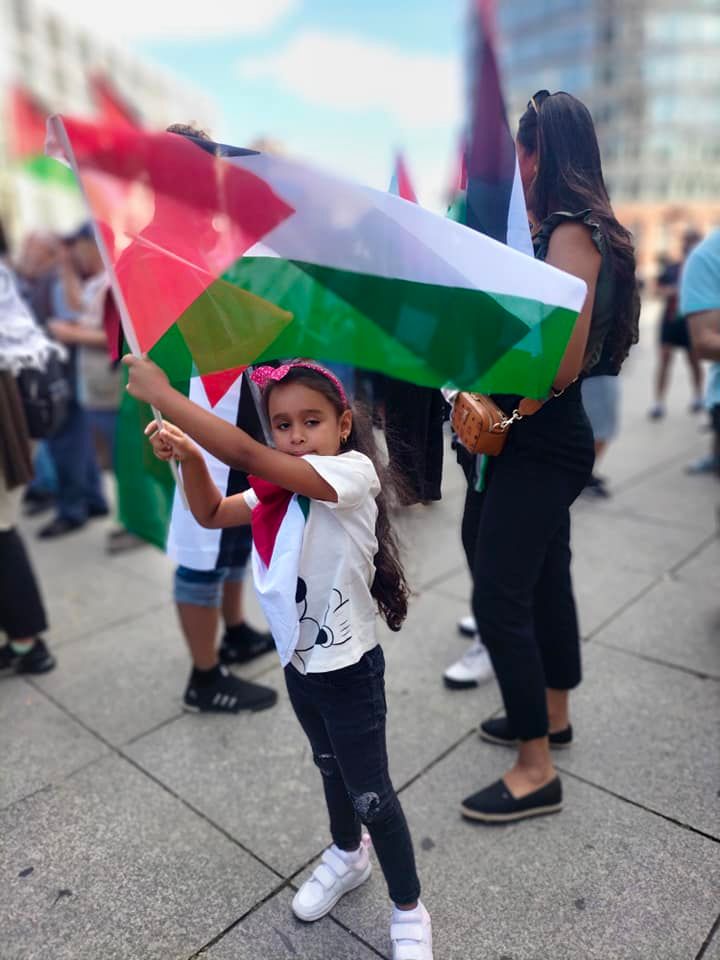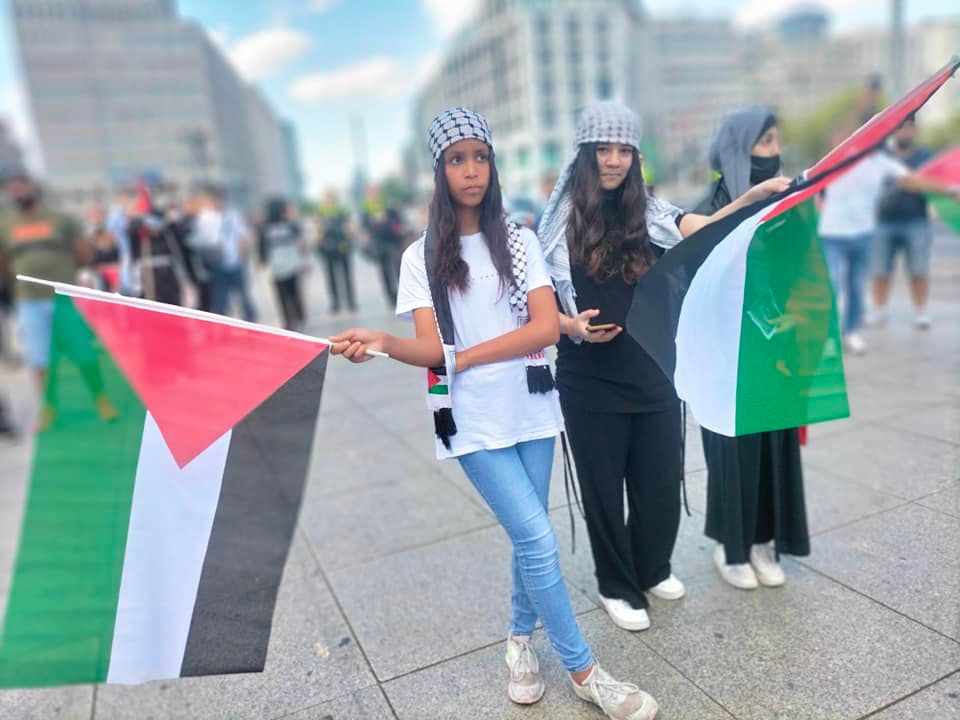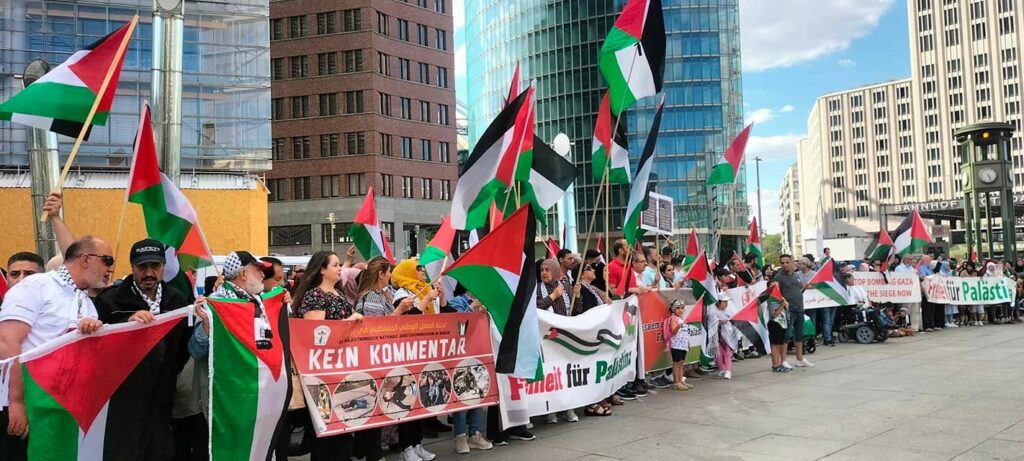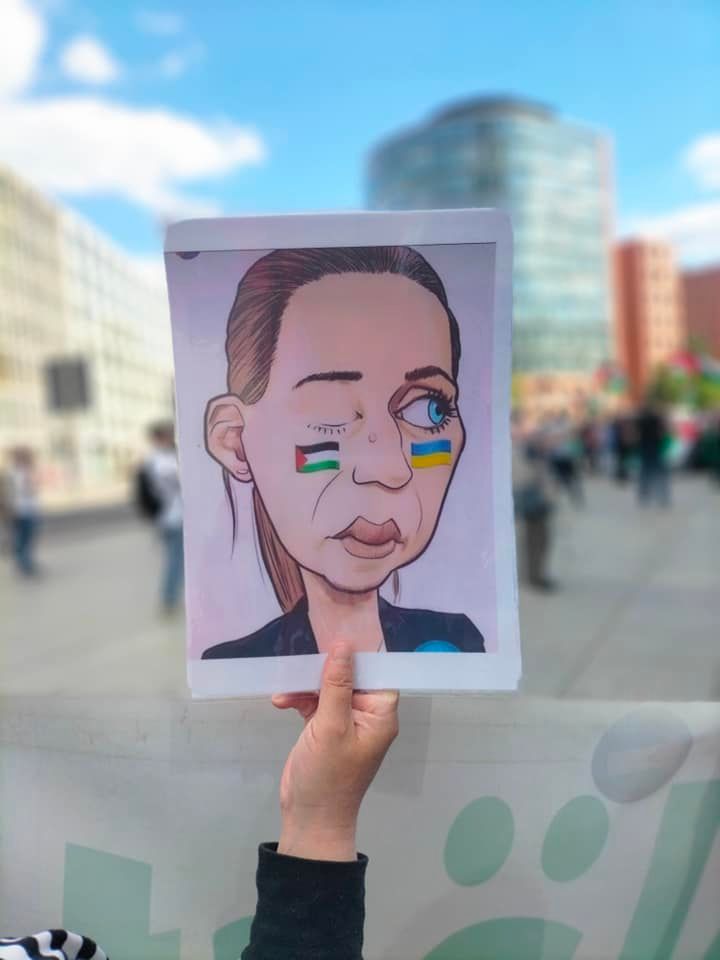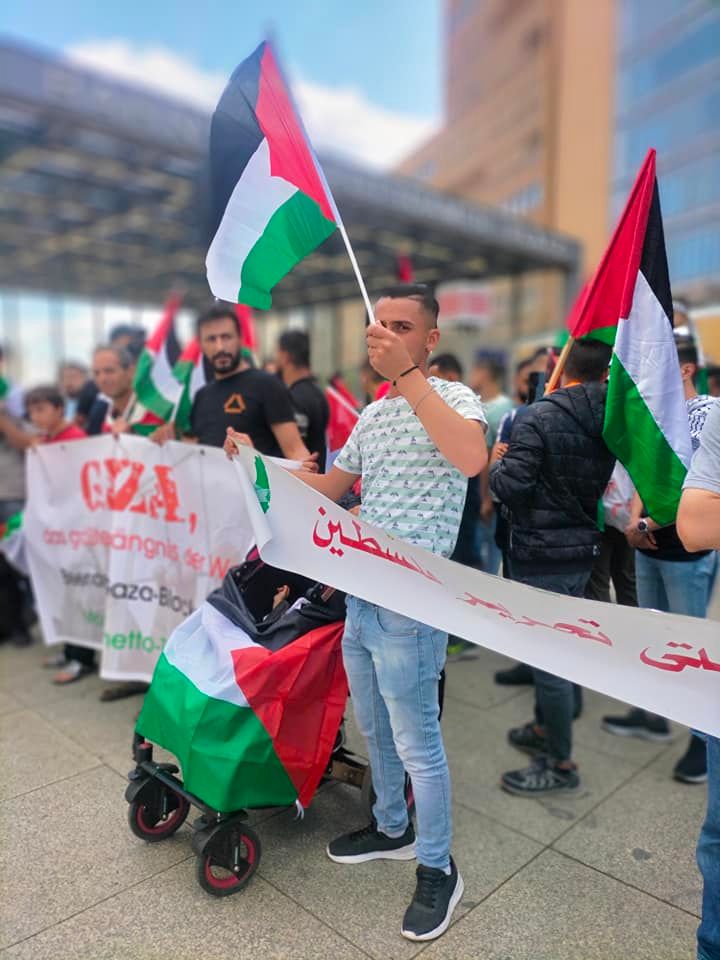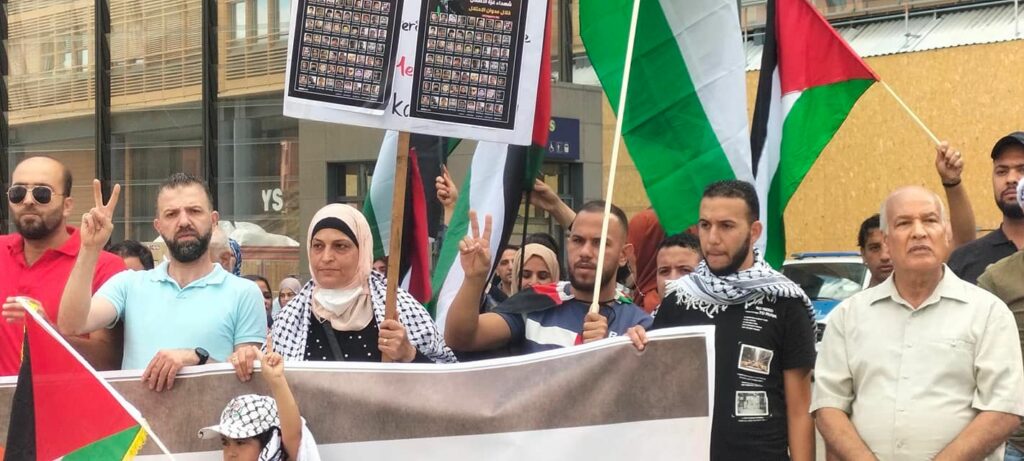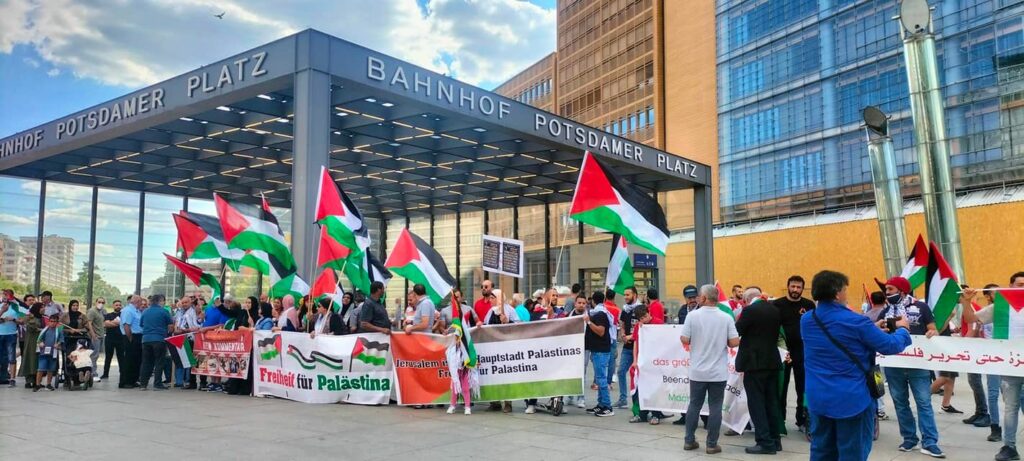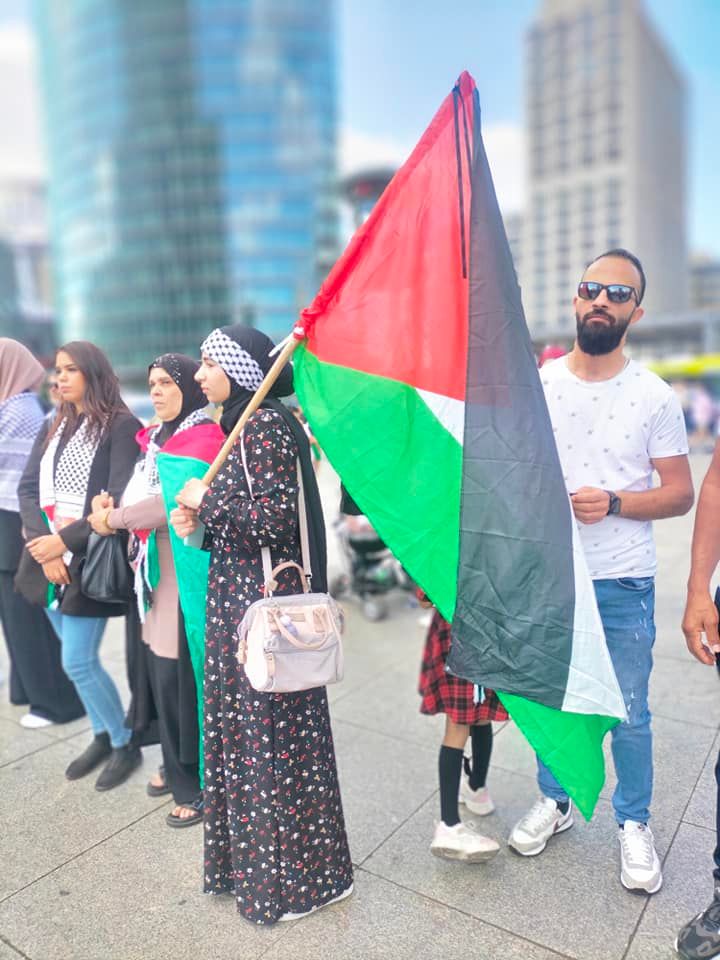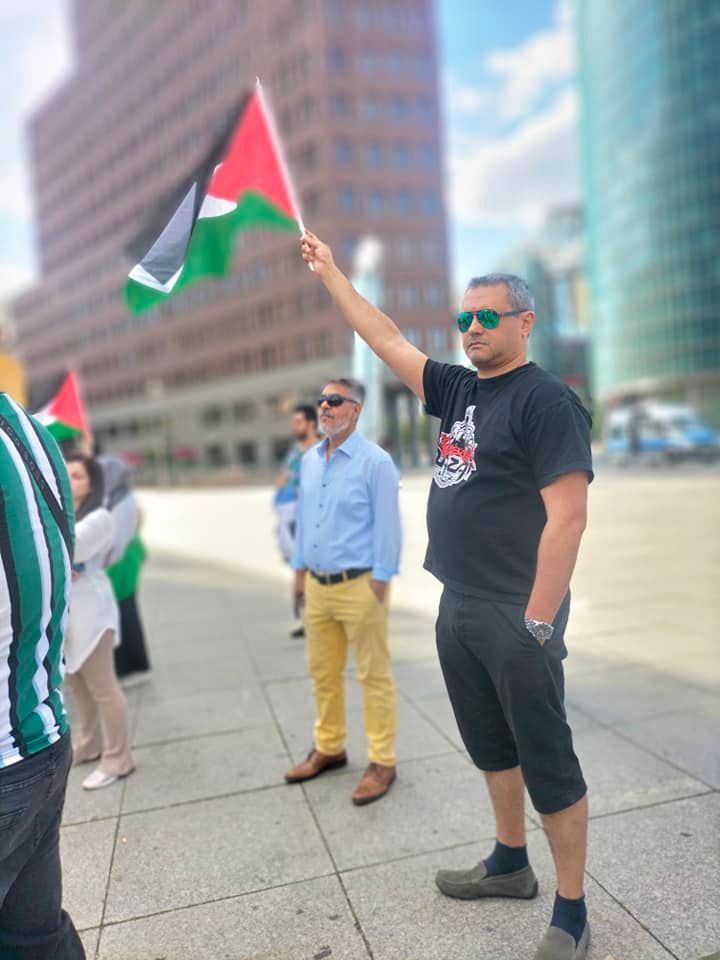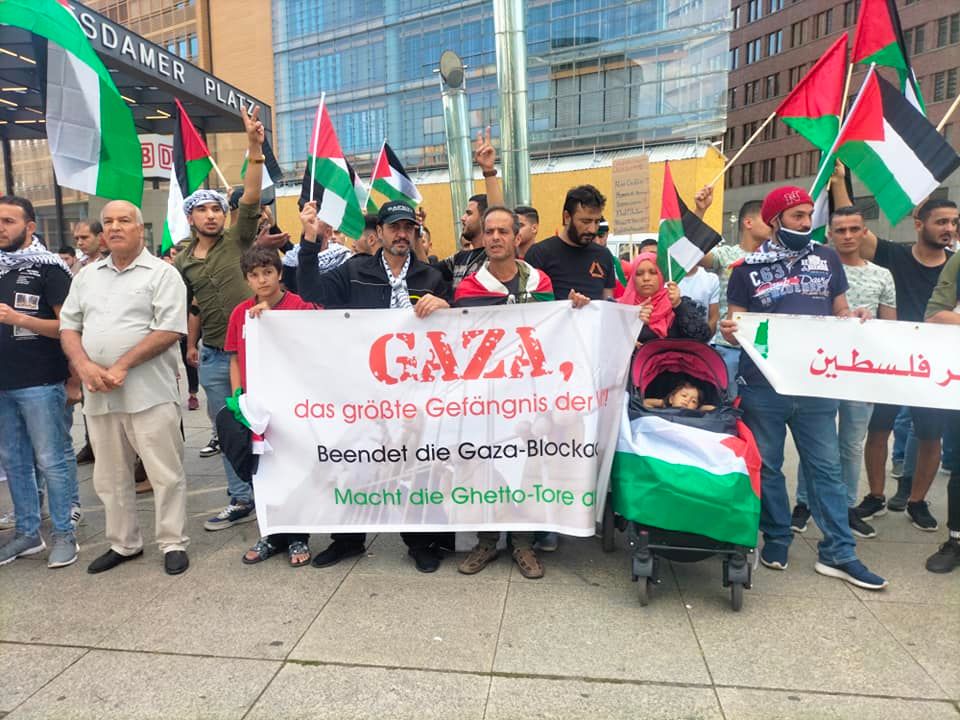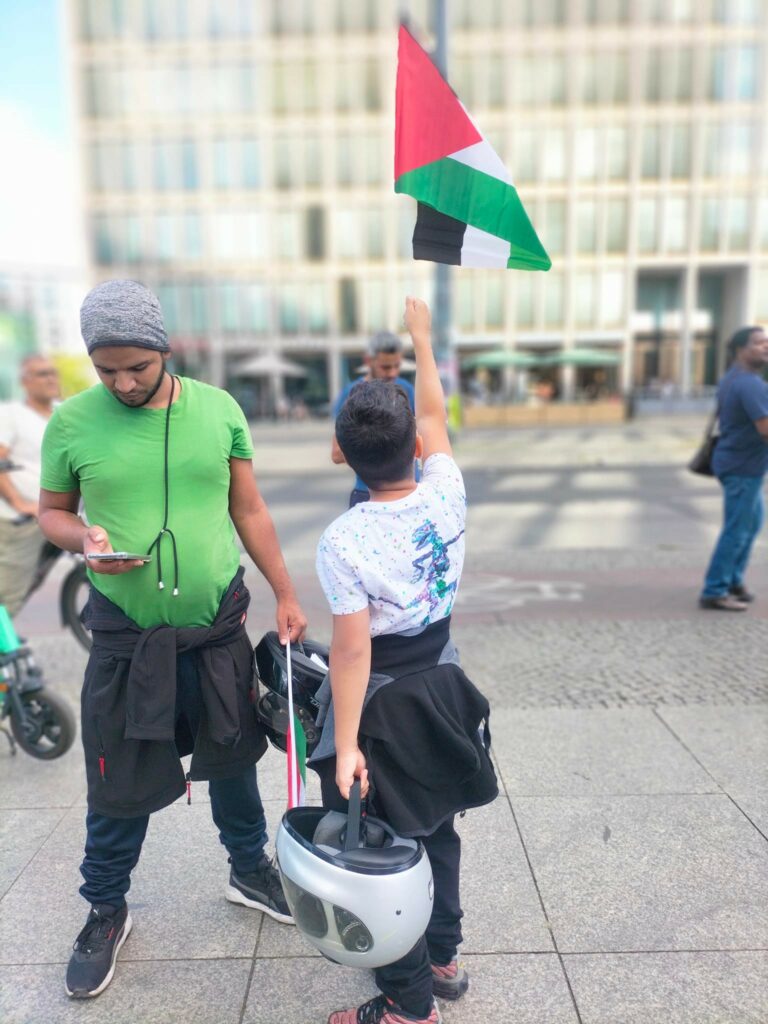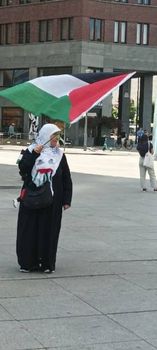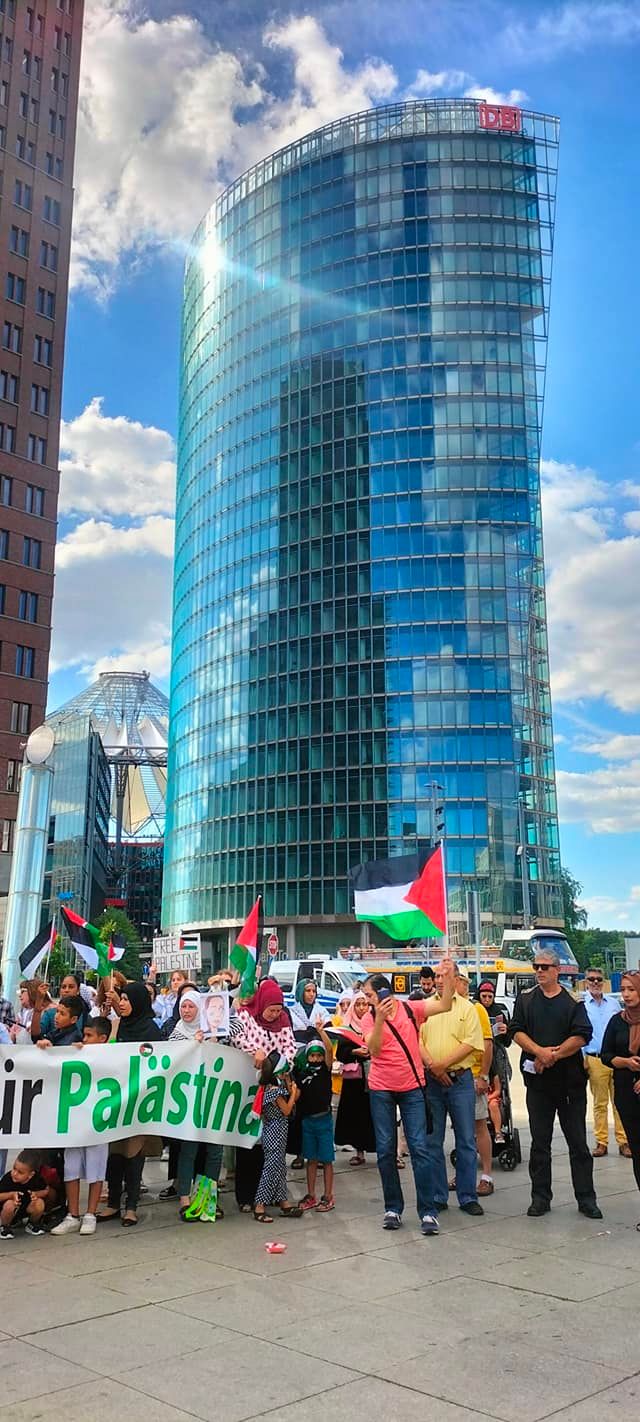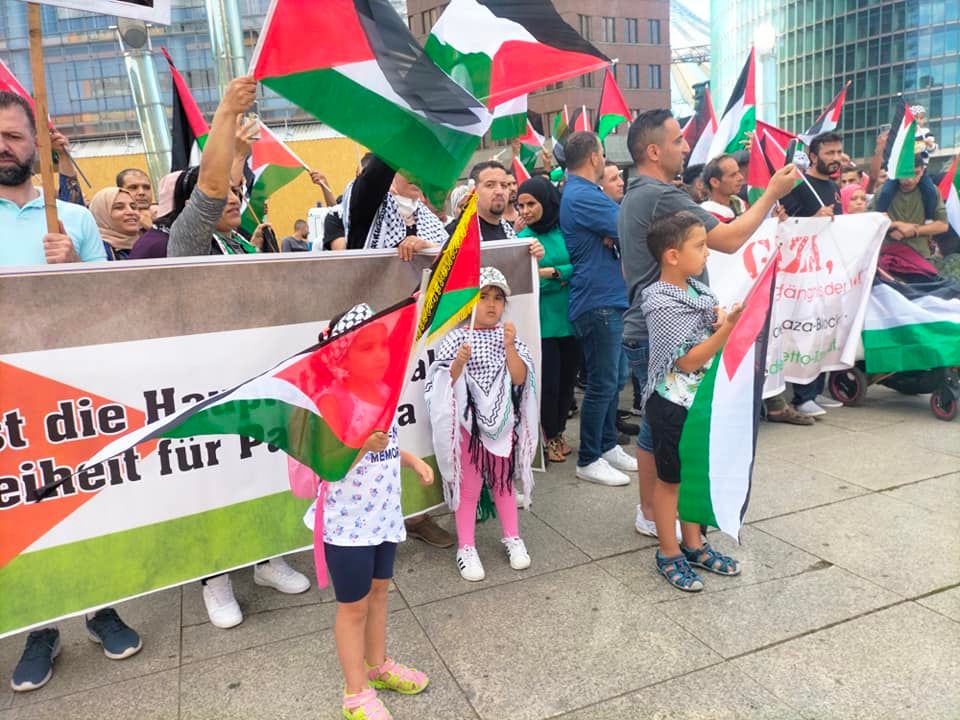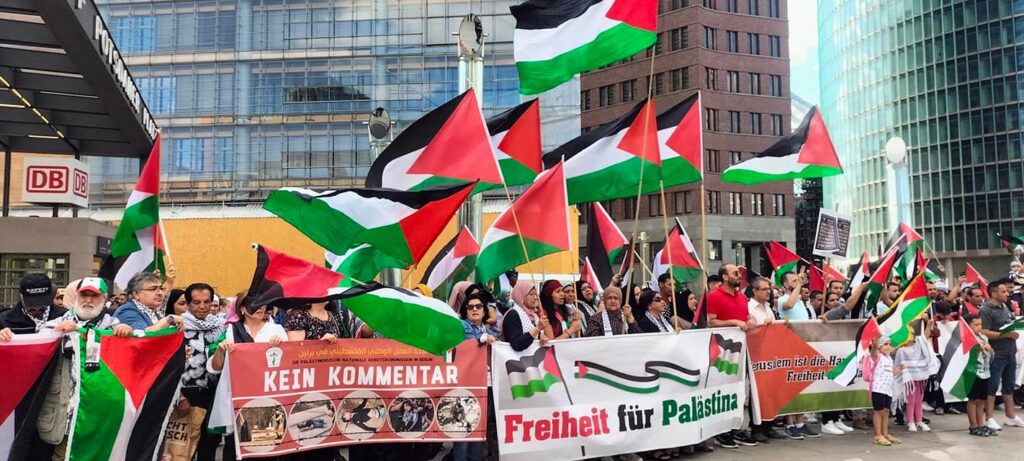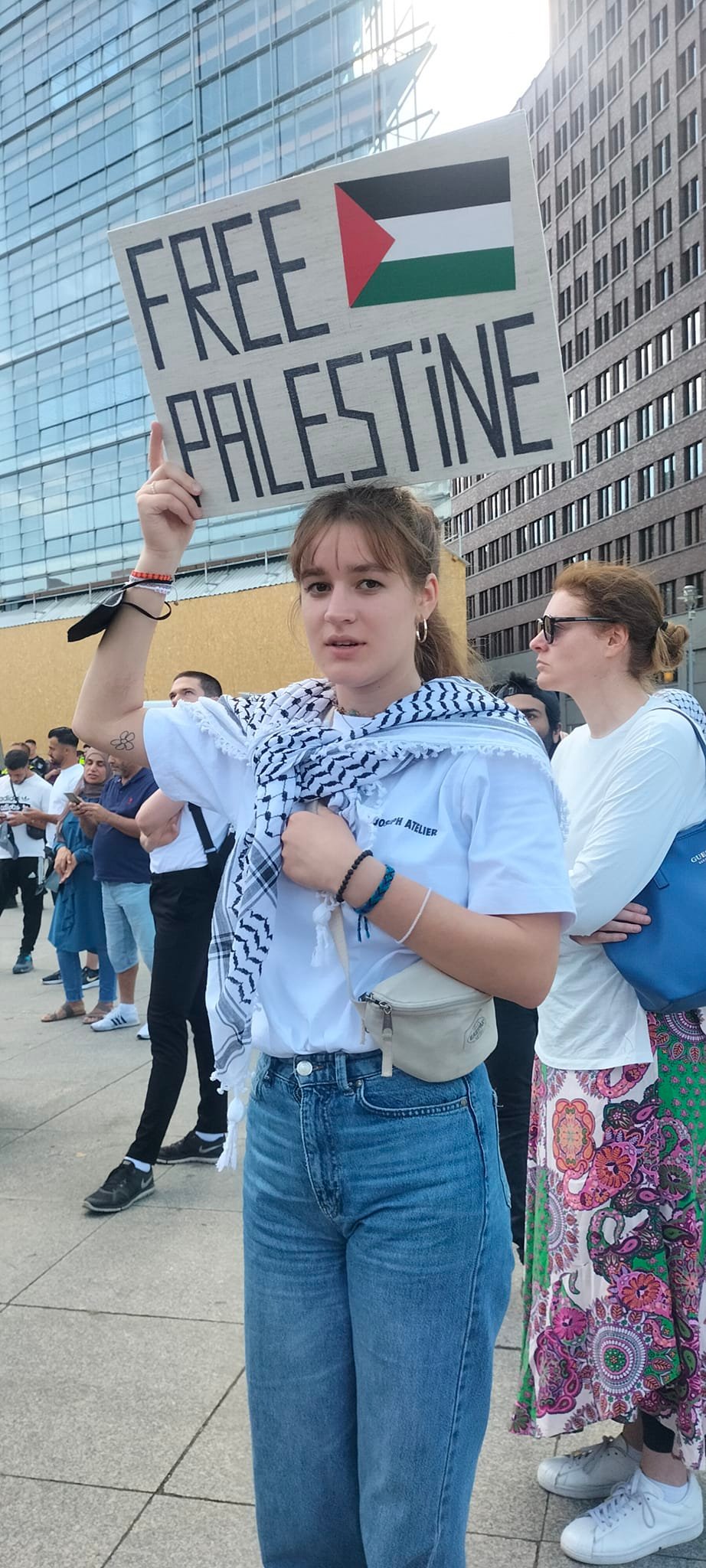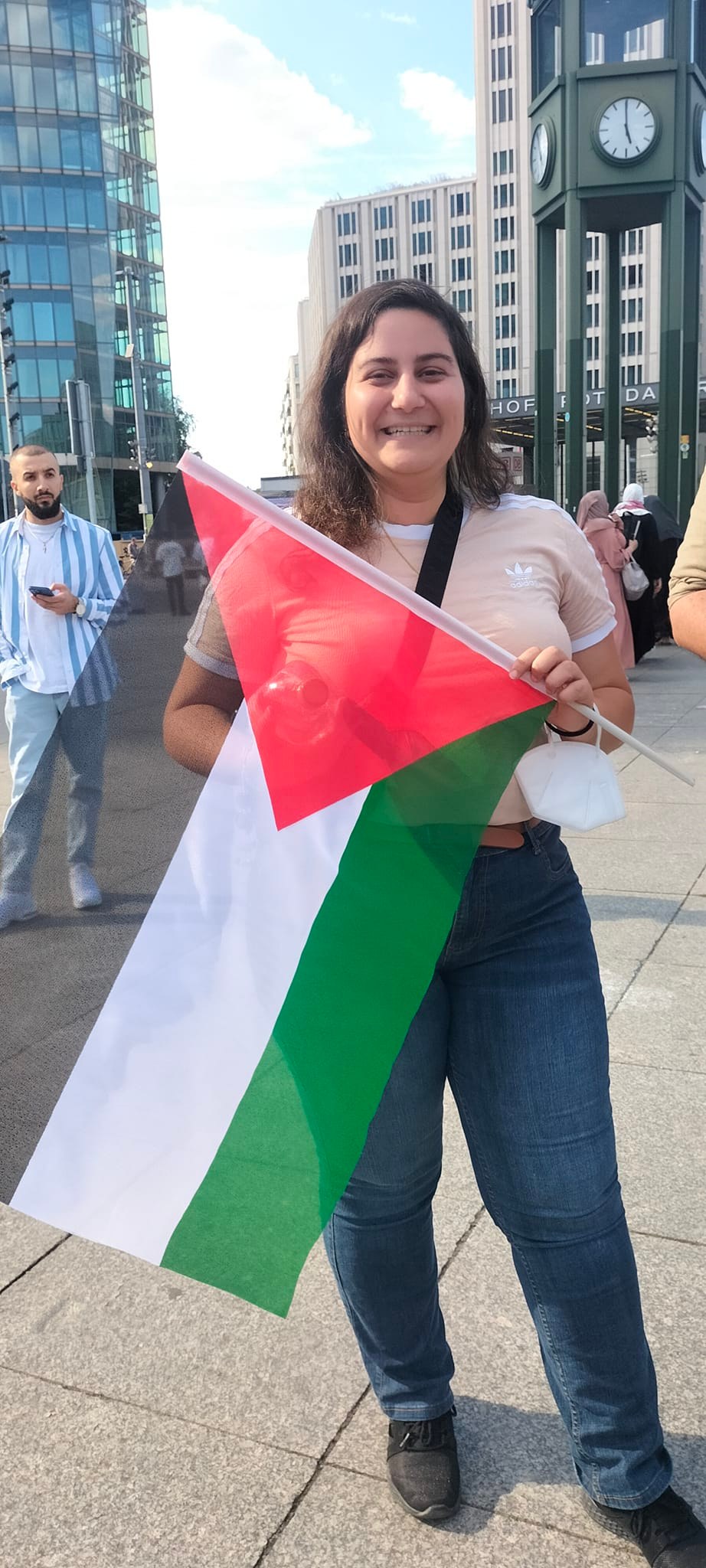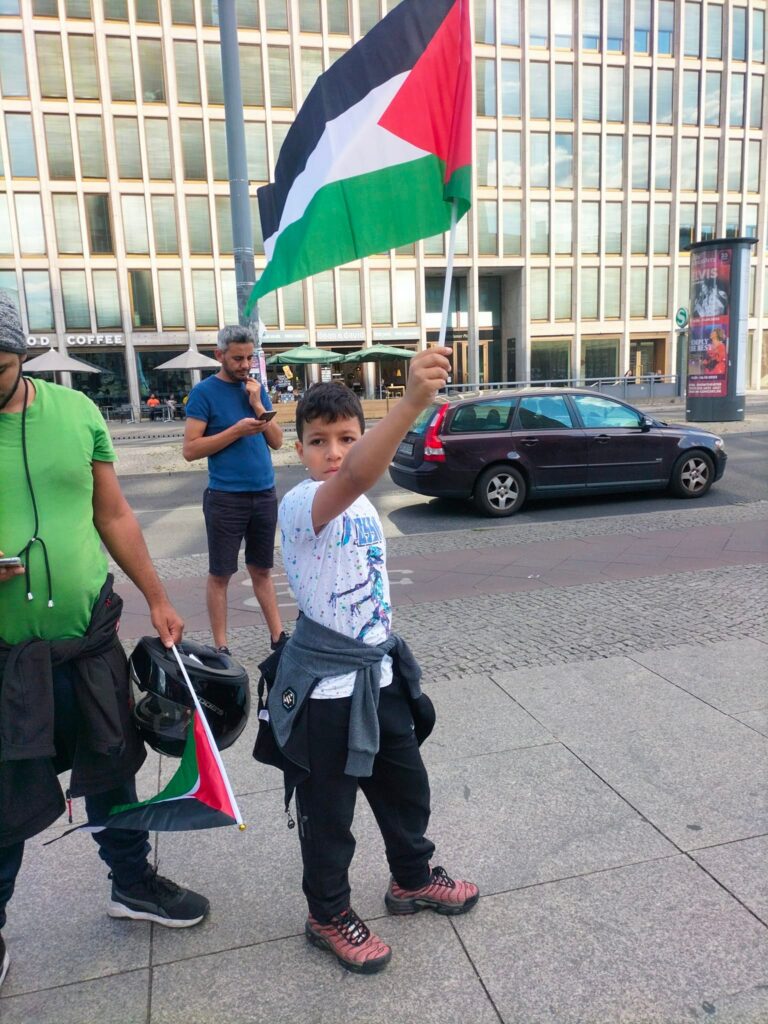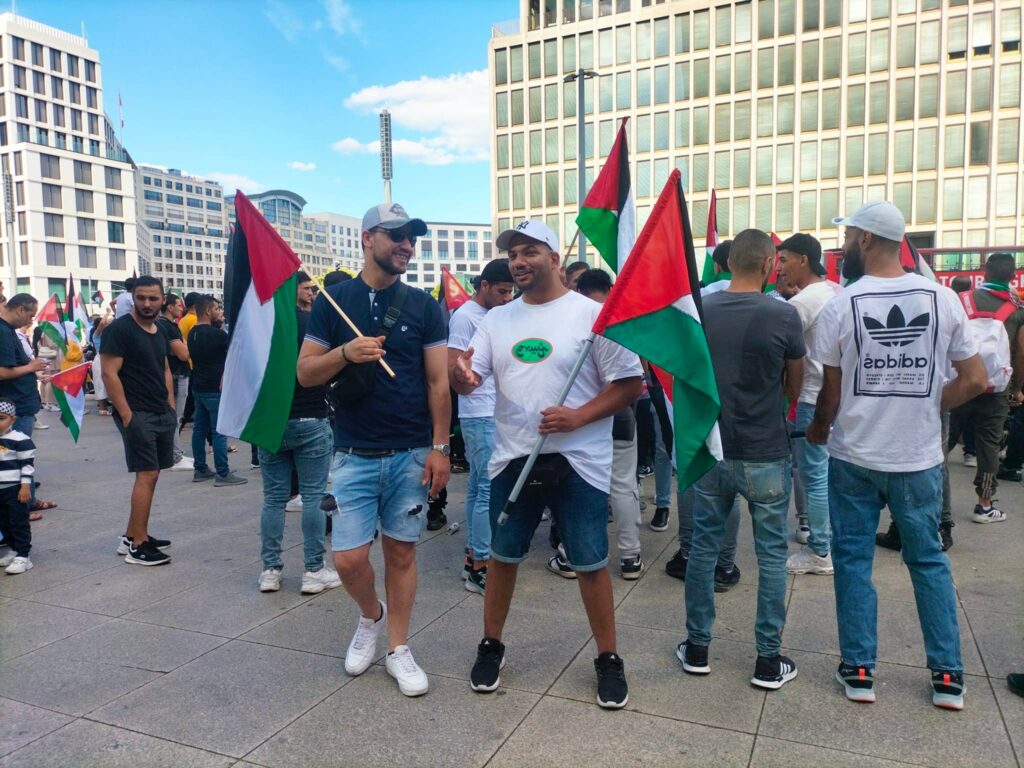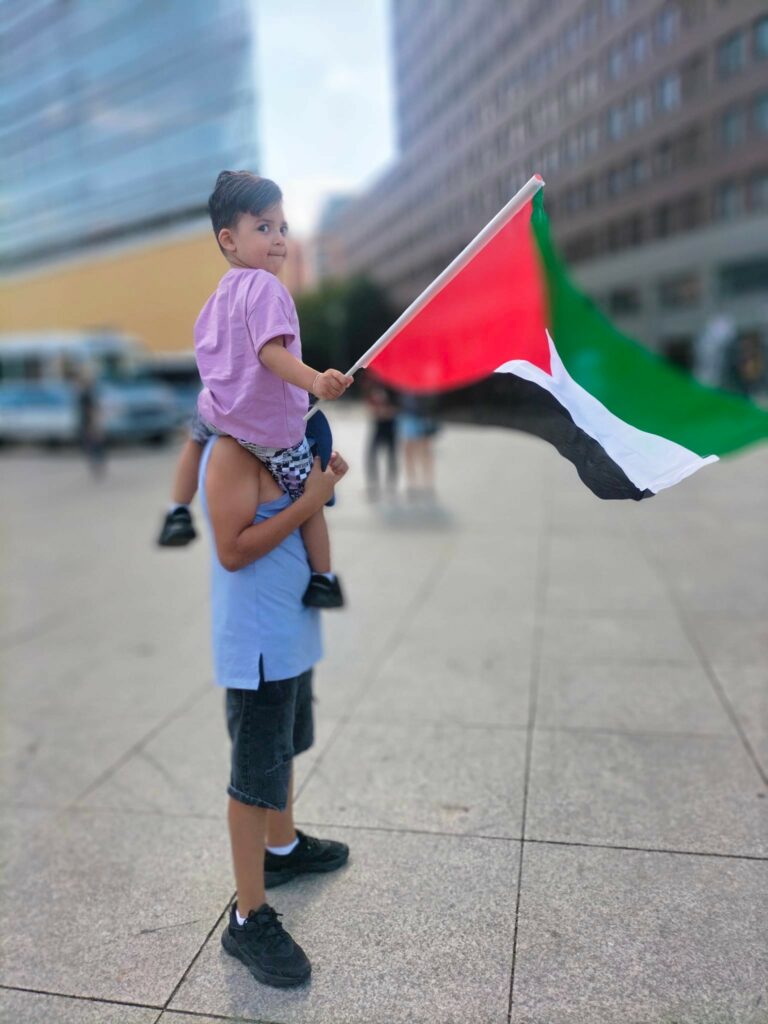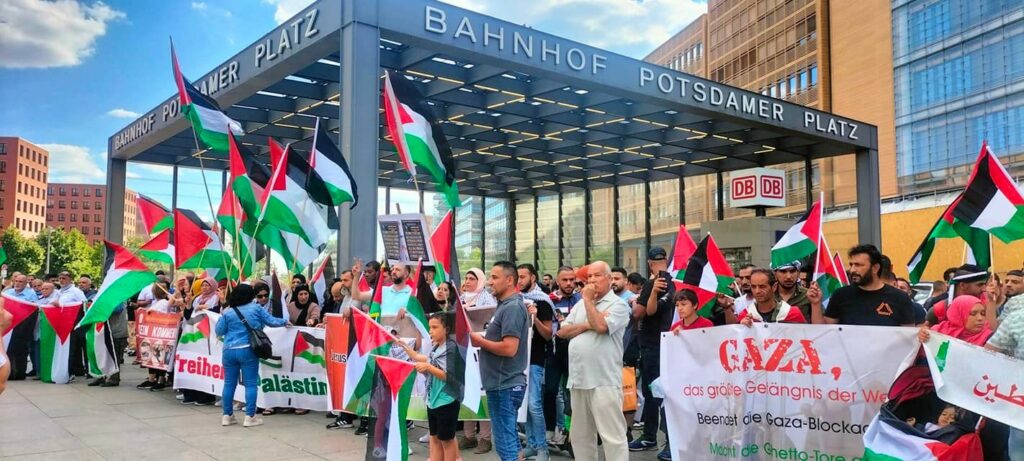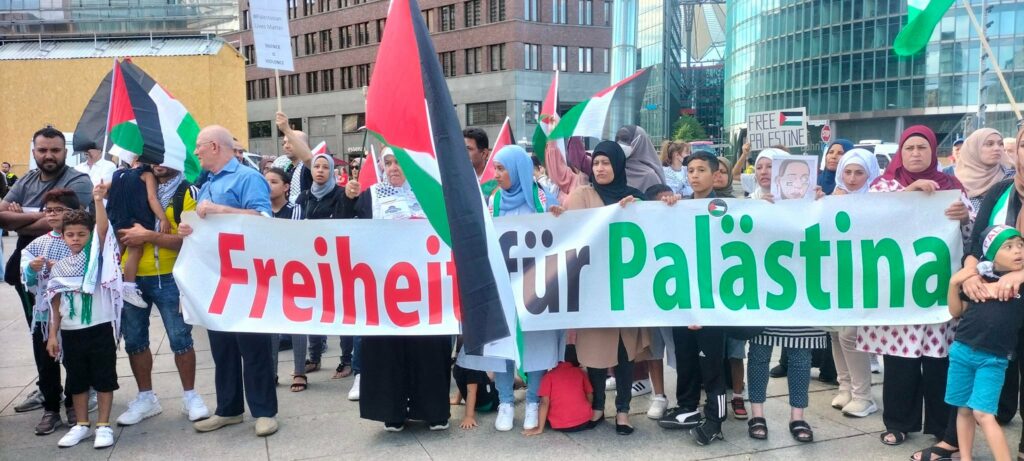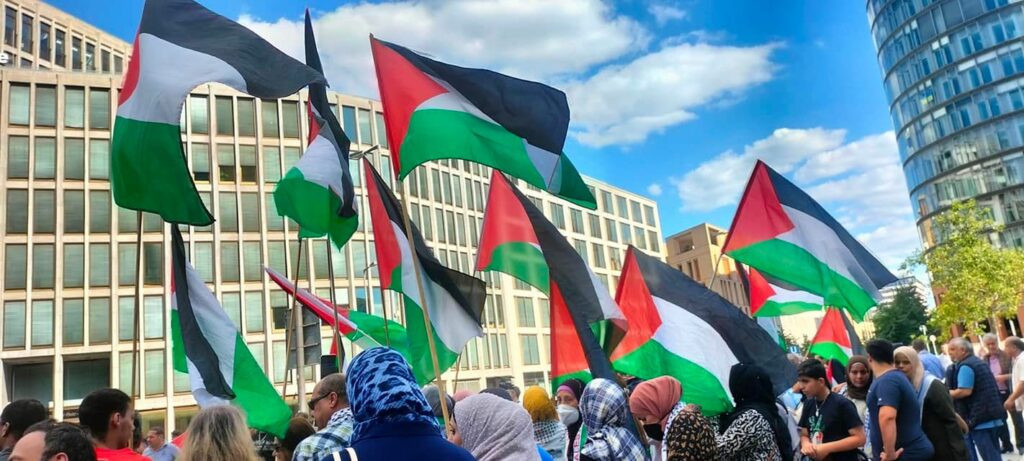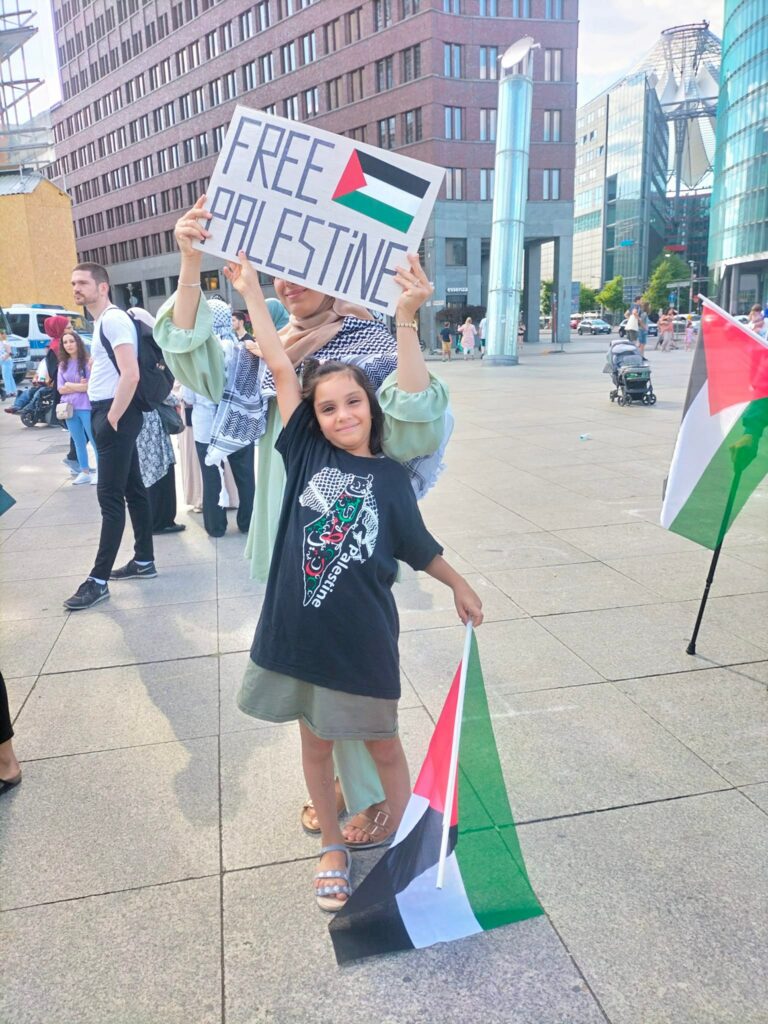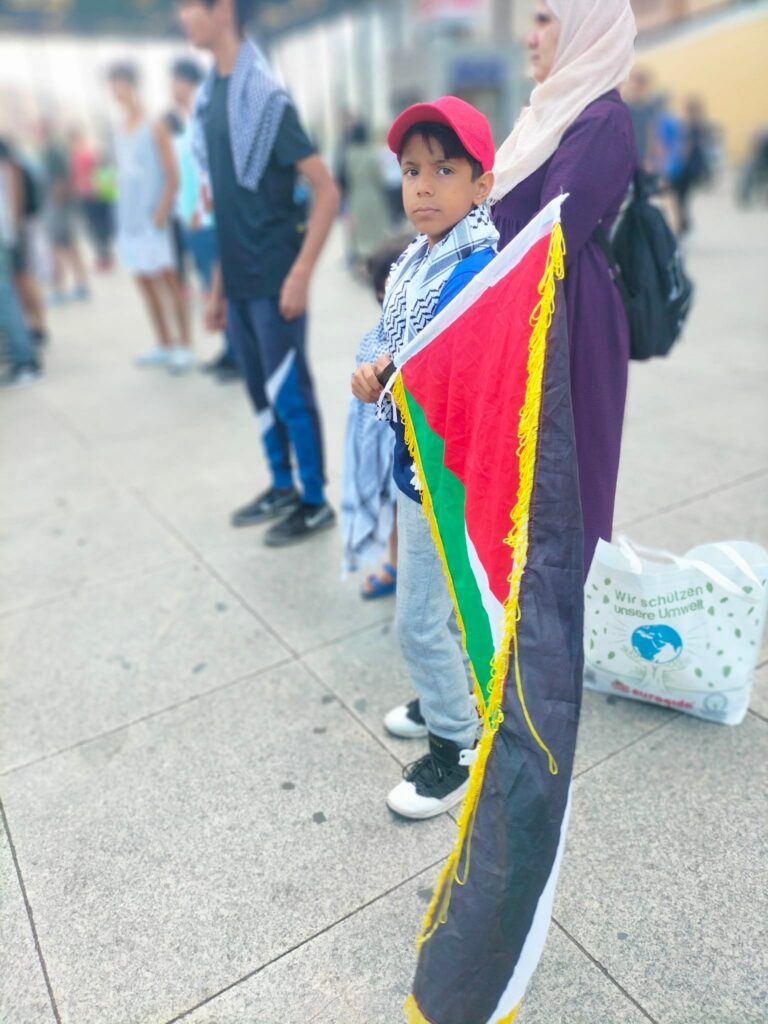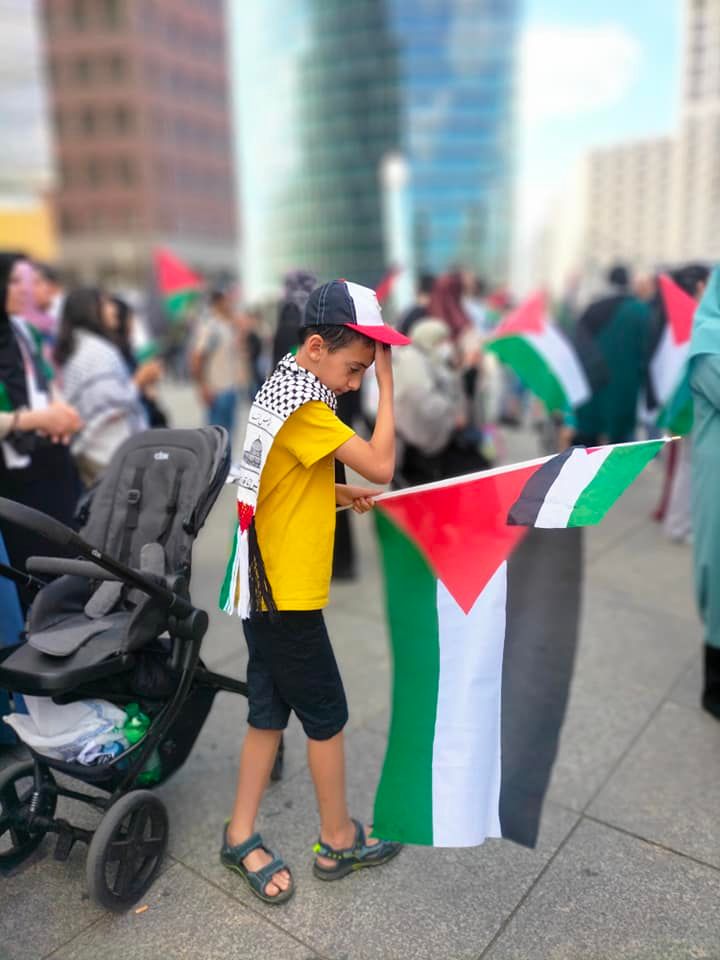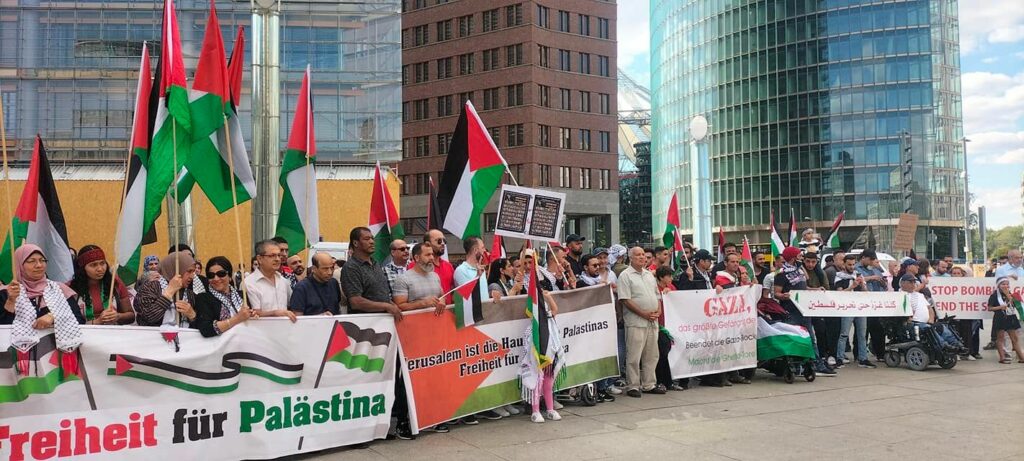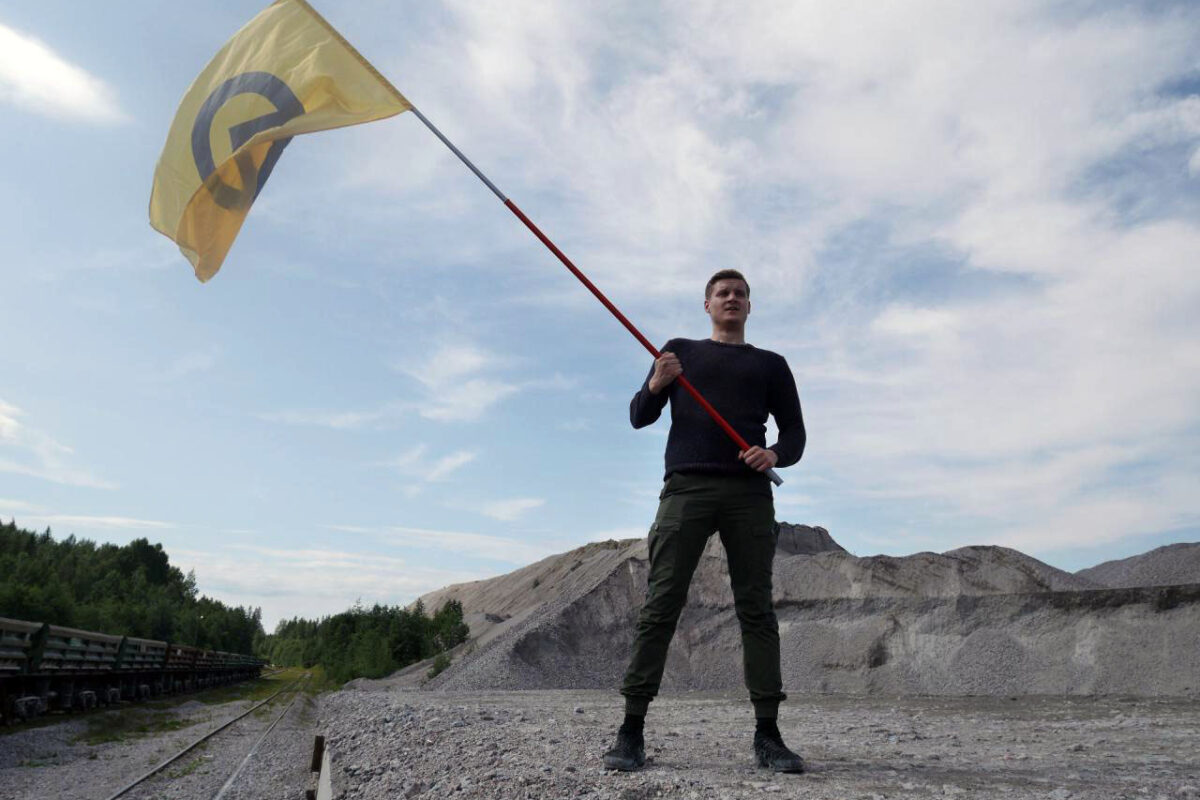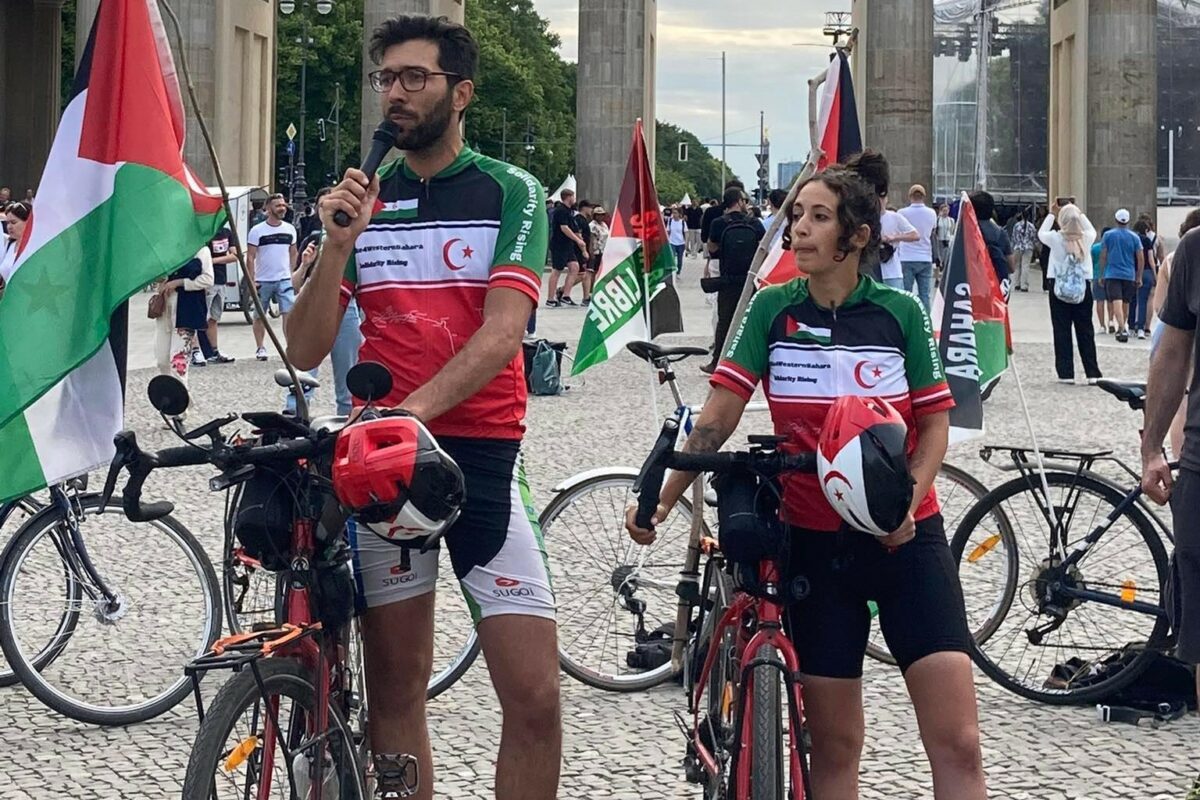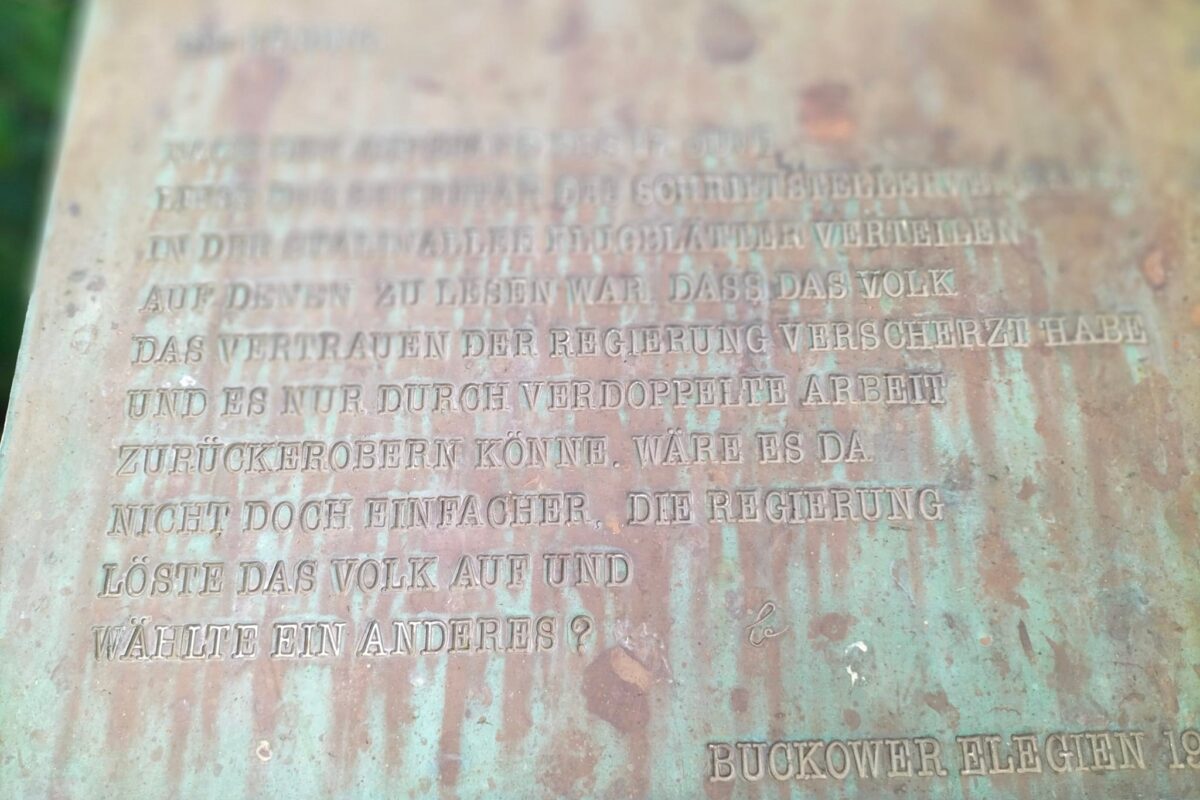President of Russia Vladimir Putin declared denazification was the aim of the war in Ukraine – or, the liberation of Ukraine “from Nazi-minded people and Nazi ideology“. Many Nazis and far-right media work for state propaganda to promote Russian “antifascism“, which was just a pretext for the invasion of Ukraine. ‘Antifascist Europe’ reported five such Russian far-right journalists and two media outlets.
The term “denazification“ has practically disappeared from Russian TV channels. Russian media outlet Proekt says that this is because, surveys showed that Russian citizens do not understand the meaning of the word “denazification“. However, Russian authorities and officials continue to use the term “Ukrainian Nazis“, and Russian official media and pro-government Telegram channels call Russian soldiers “antifascists“. This term is promoted even by those who even recently openly embraced National Socialism.
Gleb Ervier – A neo-Nazi journalist with a fascist tattoo on a head
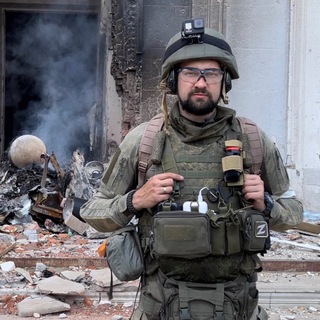
In May, Ukrainian journalists discovered among war correspondents of the Russian news agency RIA Novosti this outspoken neo-Nazi. Examining his photos they concluded that he has at least three neo-Nazi tattoos on his body: the fascist fascia (bundles) on the back of his head, the rune Algiz on his arm and the inscription “Jedem das Seine“ on his chest.
Gleb Ervier is a far-right tattooist from Tomsk, the NEWS.ru investigation alleges. There, he was noted for participating in the ‘Occupy Pedophilia’ project of the ‘Restruct’ movement, created by Russia’s most notorious white power skinhead Maxim “Tesak“ Martsinkevich. A video of Ervier’s involvement in catching a “pedophile“ was published online.
Gleb Ervier moved to Moscow in 2016 and, together with Andrei Dedov (nicknamed Ded, of the Tesak gang), opened ‘Studio 18’, a tattoo parlour at the hipster ‘Flacon art factory. Ervier also propagandised far-right views through his ‘Citadel project’, which produced three documentaries under the general title “The European View“ with himself as a host. The title is from a book of the same name by the odious SS officer Leon Degrelle. Gleb Ervier has removed his film from the Citadel channel, but it is easily found on YouTube.
In 2020, a big investigation into the Tesak gang murders came out, suggesting that Ded might have been involved in three murders including beheading of a Russian prostitute. Tesak testified against him and his associates and died in prison. Ded sold his share of the tattoo parlour and fled to Ukraine to avoid life imprisonment. In 2021, a public campaign was launched to shut down the Studio 18 tattoo parlour of Gleb Ervier and Ded. A TV report was published about the Nazis’ activities at Flakon, and a petition reached municipal deputies and was sent to the prosecutor’s office. However, Russian authorities have not responded to the demand to close the neo-Nazi tattoo parlour in the centre of Moscow bearing Adolf Hitler’s name in the title. The studio still exists today, but under a different name.
In February 2022, Gleb Ervier suddenly changed his profession from far-right tattooist to war correspondent, becoming a propagandist for the Kremlin. The ‘RIA Novosti’ (current name ‘Russia Today’) is one of the largest state-run news agencies in Russia. The website RIA.RU is one of the leaders of the ‘Runet’ among online information resources, and the most quoted Russian media on social networks since April 2022. Although Gleb Ervier had not previously engaged in professional journalism or collaborated with the media,,four days after the war began, his first report on the shelling of Donetsk came out on 28 February.
Ervier stressed on radio RT: “This is not the first time the scandal surrounding my tattoos has come up and each time it fades quickly because there is no substance to it. It’s clear to everyone that I come from a certain subculture. Yes, indeed, I was far-right, I was a near-football fan – with all that entails. That was for a long time, while I had my adolescent maximalism. Then it all ended. The whole story is on the internet, I came out of it publicly, “levelled up“, changed my views. Do I repent of that story? No. Simply because it was an experience – a very unusual one. We don’t have many correspondents who have that experience. This experience helps to find interesting details, stories.“
Ross Marsov – A leading Russian Identitarian
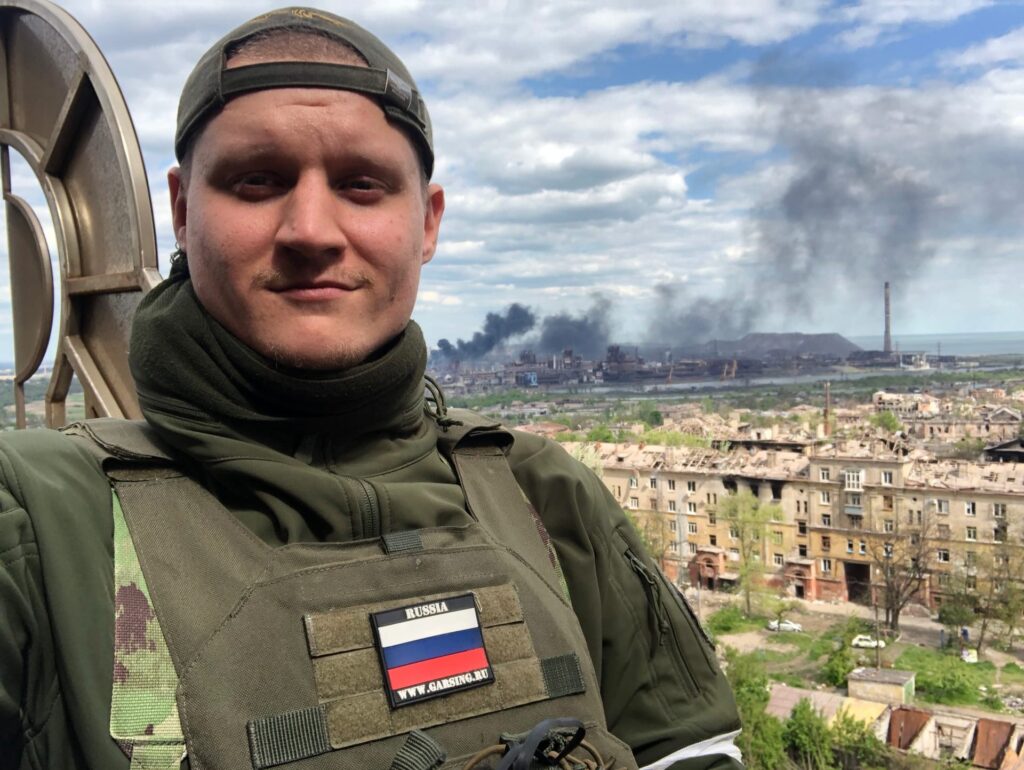
One of Gleb Ervier’s closest comrades is the young far-right activist and former white power skinhead Ross Marsow. In November 2020, Ervier interviewed him for his Citadel project. One month later they visited Armenia together to cover the mass protests, where they gained their first experience as correspondents.
Ross Marsow founded ‘Identitarians of Russia’ in 2017, after the example of the European ‘Generation Identity’ movement. In its’ four years of existence, the movement has firmly established itself as a new right-wing movement of Russia with dozens of direct actions, rallies, lectures, trainings and debates. It published its book ‘Generation Identity’ and organised a public lecture by the British far-right politician, co-founder and former leader of the ‘English Defence League’, Tommy Robinson in 2020. Identitarian of Russia was dissolved in 2021 due to an internal crisis.
Ross Marsow stresses that he has supported ‘Novorossiya’ (Russian expansionism) since 2014. Therefore, he had no question in principle whose side to take in the war. In April 2022 he went to the Donbass as a “military correspondent”. However, unlike Gleb Ervier, who received his journalist credentials from a state agency, Ross Marsov works for the small projects Ledorub, Urgent Now and Your News, which are in fact Telegram channels. Already in early May Ross Marsov reported from Mariupol, where he covered the siege of the Azovstal plant, he then went to the front line in the town of Popasna. In July he returned to Russia, where he began to speak about “The New Right in War”.
Dmitriy Steshin – The BORN identity
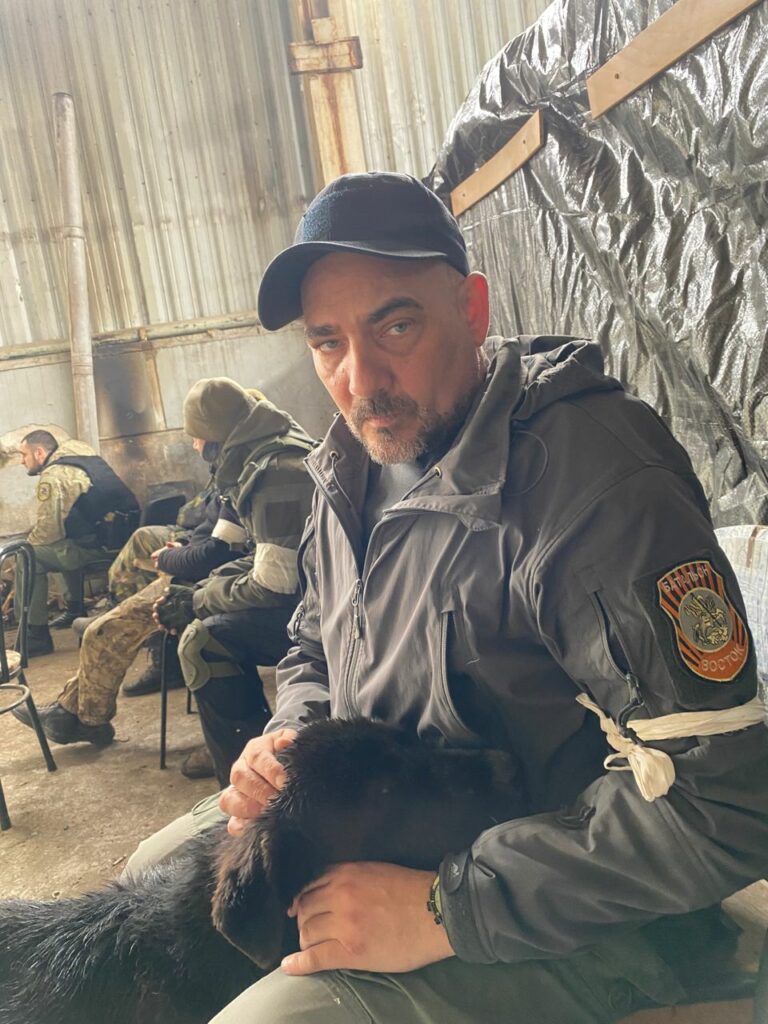
One of the most prominent far-right Russian journalists working for state propaganda is Dmitry Steshin, a war correspondent of the yellow newspaper ‘Komsomolskaya Pravda’. This newspaper is part of the publishing house of the same name, one of the largest in the country, and KP.RU has a monthly traffic of about 100 million people.
Dmitry Steshin has covered the war in Ukraine since 2013. When Putin announced a “special military operation“, Steshin was already in Donetsk and warmly welcomed the president’s decision. Steshin is well acquainted with the militias of the unrecognised Donetsk and Luhansk People’s Republics, as he has travelled with them to the front lines on more than one occasion. Steshin also published a series of reports from Mariupol during the siege of the Azovstal plant, where one of Ukraine’s most notorious far-right units, Azov, was entrenched. “The Nazis are going to Valhalla first class,“ Steshin mockingly wrote in his text, which sounds extremely ambiguous in the context of his biography.
Steshin openly calls himself a nationalist: “Liberals have usurped journalism, decided that light comes only from their ideas and they are right by birth. According to them, a person with nationalist views should be a dumb jew-eater with a snaggletoothed handwriting. I don’t fit that standard, I’m tearing up the template“. But in addition Steshin has befriended Russian Nazis from one of the most dangerous groups ‘BORN’ (2008-2011), and wrote texts for the far-right magazine ‘Russian Image’ – a front for underground terrorists.
Steshin was a witness in the BORN case, but miraculously escaped prosecution, although there were direct indications that he helped the killers to obtain firearms and then to escape. BORN conducted a dozen particularly serious crimes, including killing Eduard Chuvashov, (judge of the Moscow City Court), Stanislav Markelov (lawyer), Anastasia Baburova (journalist), and the antifascists Alexander Ryukhin, Fedor Filatov, Ilya Dzhaparidze and Ivan Khutorskoy.
Dmitry Steshin was an old friend of BORN leader Nikita Tikhonov. Steshin testified during interrogations, he met the neo-Nazi Tikhonov at the editorial board meeting of the ‘Russian Image’. Started by Nikita Tikhonov, the magazine grew into the political organization of the same name. Nikita Tikhonov said he had been hiding in Steshin’s flat when he was put on the wanted list for the murder of antifascist Aleksandr Ryukhin in 2006 and went on the run. “With Dmitry Steshin we had a common interest in trekking. As an enthusiastic military archaeologist, he suggested that I travel to World War II battlefields for research and outdoor recreation. We became friends,“ Tikhonov said in his testimony.
It was Steshin, according to Tikhonov, who introduced him to arms dealers. “Using Steshin’s friendly feelings, I begged him to help me get something to shoot,“ the BORN leader recalled. Steshin introduced him to a trader, from whom Tikhonov purchased a Suomi submachine gun, a rifle Mosin round and ammunition. Thus the neo-Nazi gang got an arsenal of weapons. Through these acquaintances of Steshin, Nikita Tikhonov also purchased the Browning revolver with which Markelov and Baburova were shot. During the search of Steshin’s house some of Tikhonov’s things were found, including Tikhonov’s real passport – as the neo-Nazi himself lived with forged documents.
Nikita Tikhonov was convicted of murder and weapons possession in April 2011 and sentenced to life imprisonment in May 2011. Steshin was not the only journalist among the friends of BORN to get away with it.
Andrei Gulutin – a neo-Nazi drummer and a head of the Kremlin media
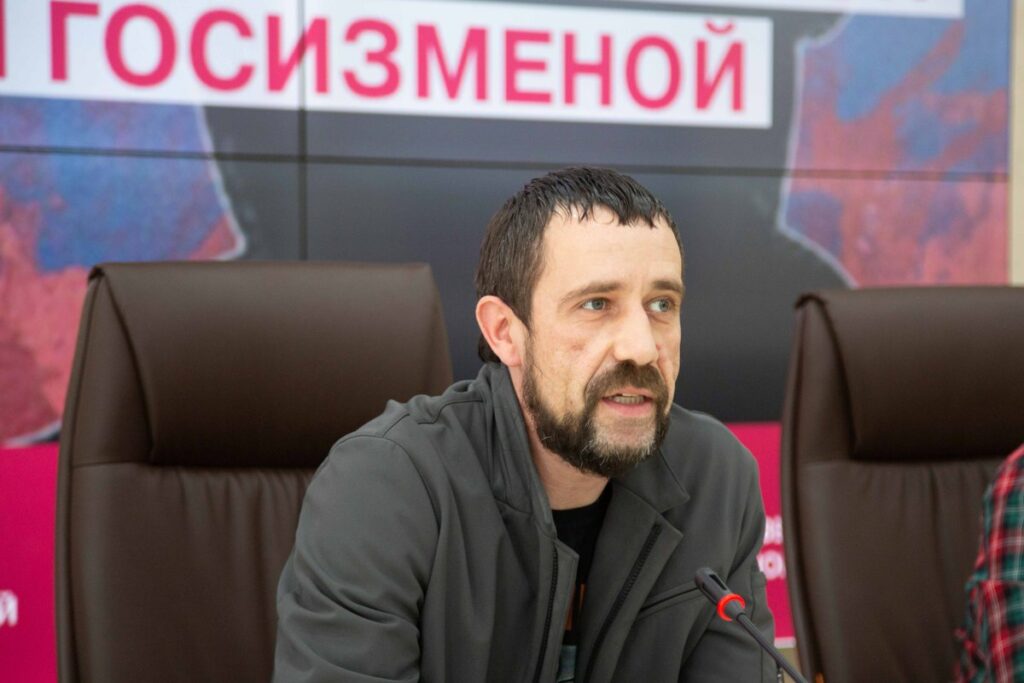
Andrei Gulutin, nicknamed “Most“, is another journalist implicated in the BORN case. Andrei Gulutin is mentioned in the materials of the murder case of lawyer Stanislav Markelov and journalist Anastasia Baburova, as a friend of Nikita Tikhonov. In particular, he was mentioned in testimony by the leader of the neo-Nazi group Right Hook.
Gulutin started as a drummer in the neo-Nazi ‘Band of Moskow’, in early 2000. They played Oi!/R.A.C. with Ska elements. Their first song titles were “Street Fight“, “Let the Blood Spill“, “Nazi-ska“, “Aryan Legion“, “White Struggle“. The ‘Federal List of Extremist Materials’ includes several Band of Moscow songs banned in Russia, including “More and More of Us“, “Three Bright Colours“, “NS Squads“, “Race War“, “Vivat; 1488th After That You Talk About Tolerance“.
Gulutin moved on to play drums in the neo-Nazi band Right hook (2006-2010), which declared itself the voice of the ‘Russian Image’ organisation. Despite a flamboyant musical career and a Nazi past, Gulutin achieved success in the corridors of Kremlin.
By 2010, the ‘Russian Image’ came under Kremlin control, having direct supervisors from the Presidential Administration. In 2011, under the pseudonym of Andrei Osipov, Gulutin became head of the “United Russia’s Young Guard“ Internet page, for the ruling party’s youth organization. After the BORN trial, nationalists from the Russian Image tried to disassociate themselves from the murderers, renamed themselves into “right-wing conservatives“ and created a new website ‘Modus Agendi’, which Gulutin also led. Then former neo-Nazi musician came to success.
On 1 April 2013, the initially liberal on-line media outlet Ridus underwent an ownership change. Andrei Gulutin became deputy editor-in-chief, in 2015 editor-in-chief. He began to pursue an “orthodox-statist editorial policy“. Gulutin still leads Ridus. While his subordinates talk about the Nazis in Ukraine, their leader writes caustic columns about antifa, who are given “license to hate and violence“. Now Ridus has dropped off the top of the online statistics having lost popularity. According to open counters, its average day attendance is 150,000 people.
Gulutin admitted to participating in neo-Nazi music groups, but claims it means nothing: “Andrei Gulutin is not an ‘adherent of ultra-right views’ – i.e. an ideology of degrading one group of people by others based on race, nationality, or any other grounds. Andrei Gulutin is not a politician to impose any views at all on the public or even his inner circle. Gulutin is, as any philistine is, what they call “for all that is good against all that is bad“… The story of Gulutin’s fights at concerts in his youth is a complete joke, you have either to point out the specific victims or don’t embarrass yourself. The only thing Gulutin is ready to admit is his participation in the Band of Moscow and Right hook when he was young. Participation in these musical groups, however, in no way showed Gulutin’s adherence to any political views“.
Vladislav Maltsev – a white patriot with a two-bedroom flat
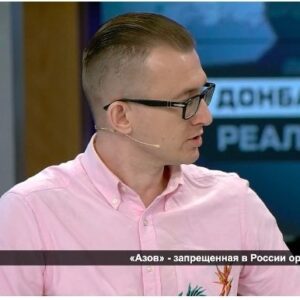
Vladislav Maltsev (real surname Noskov) describes himself as an expert on the far-right at Ukraina.ru, one of the main Russian state-owned online media outlets about Ukraine, created in 2014 by the news agency Russia Today. Yet Maltsev glosses over the fact that he himself was recently a far-right – and a very prominent one at that.
In the 2000s Maltsev became known as the author of the Nazi blogs white_patriot and nebo_ slavyan. He joined the ‘National Socialist Society’ (NSO), established in 2004, and promoted it among the far-right on livejournal.com, which was then the main social network in Russia. The NSO attracted radical Nazis who tried to come to power through street terror, but things did not go according to plan.
The NSO split and the NSO-North terrorist group was formed. In 2008, thirteen gang members were arrested on charges of 28 murders – mostly of migrants, as well as the antifascist Alexei Krylov and the gang member Nikolai Melnik. Melnik was suspected of treason and beheaded on a video. In addition, the gang was accused of robbery, illegal arms and explosives trafficking, explosions, arson, and preparation for a terrorist attack on a power station. NSO-North leader Maksim Bazylev killed himself during interrogation. In 2011, five members of the gang received life sentences, while others were sentenced to long terms of 10 to 23 years. One of the NSO leaders, Sergey Korotkikh, nicknamed Botsman, fled to Ukraine, where he made a career in the ranks of Azov and bought a plane.
In January 2008, Vladislav Maltsev was beaten in Kiev by antifascists, and already in October by former comrades. Maltsev moved away from radical Nazis, shut down his blogs and became a journalist. In 2009, he began to publish in the Religion section of ‘Nezavisimaya Gazeta’. As a professional Islamophobe he made headlines around the construction of mosques in the Russian hinterland and the establishment of Sharia courts in Moscow. In 2014, he became a contributor to Svobodnaya Pressa and switched to the topic of Ukrainian nationalism. In 2017 Maltsev moved to the government-affiliated scandalous on-line outlet ‘Life’, where he continued to write about the persecution of Orthodoxy in Ukraine and Ukrainian nazis.
In a conflict with an antifascist journalist on Facebook, Maltsev boasted that he had bought a “two-bedroom flat in Moscow with Italian tiles, German appliances and porcelain“ using the royalties for his articles. This message became a popular meme, after which the owner of the Life mocked him on its’ main page and fired Maltsev. Maltsev started publishing his texts about Ukrainian Nazis in the state-owned publication Ukraina.ru, as well as in the government-affiliated publication Lenta.ru and in the openly ultra-right-wing outlets Zavtra and Tsargrad. These are large Russian media outlets with a combined readership of millions daily.
Tsargrad – First Russian Fox News owned by Konstantin Malofeev
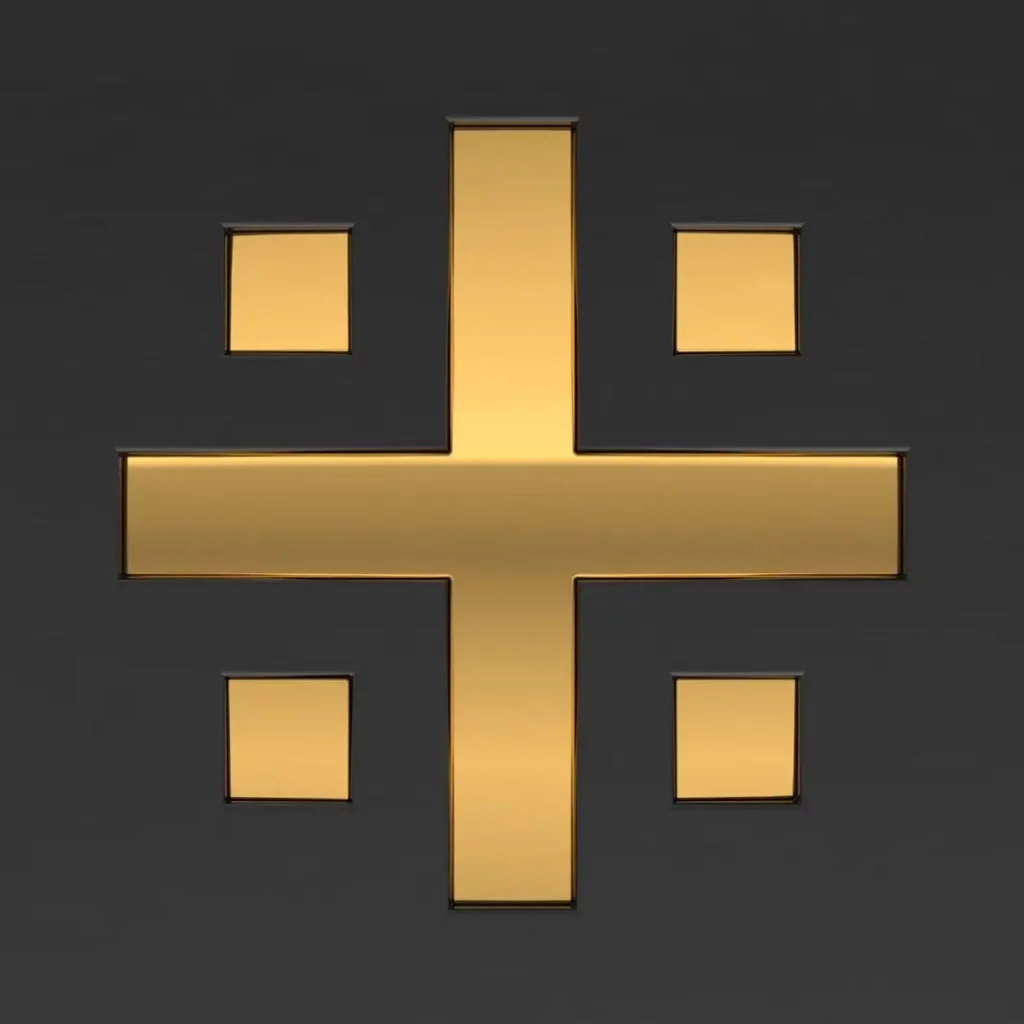
Speaking of far-right journalists in Russia, it is impossible to ignore the ultra-conservative media outlet Tsargrad, owned by Orthodox businessman Konstantin Malofeev (check Аntifascist Europe database for details). Tsargrad launched in 2015 as a cable TV channel backed by American conservative Fox News channel director Jack Hanik. “We want to create a network on Orthodox principles, similar to the way Fox News channel was created,“ Malofeev said. The editor-in-chief of Tsargrad TV was the far-right philosopher Alexander Dugin. The channel was named Tsargrad, referring to the Old Slavic name of Constantinople, the capital of the former Byzantine Empire and Orthodoxy. Its slogan is “First Russian“.
The launch was unsuccessful and by the end of 2017, Tsargrad TV switched to a broadcast on YouTube. However, on 28 July 2020, YouTube, a video service owned by Google, blocked Tsargrad’s account due to the sanctions law. The US Department of Justice identified Malofeev as one of the main sources of funding for separatists in Crimea and the Donetsk people’s republic, imposed sanctions against him and confiscated millions of dollars in his accounts.
In April 2021, the Moscow Arbitration Court ordered Google to reinstate the TV channel on YouTube under threat of fines, thus applying for the first time the priority of Russian law over international law. A year later, Tsargrad announced that it had received 1 billion rubles from Google – the money in the company’s accounts was seized by Russian authorities and then seized in favour of the TV channel. Tsargrad donated the funds to support the “special military operation“ in Ukraine.
Konstantin Malofeev is an unusual businessman. He lost all his assets in a dispute with VTB bank, after which he switched to public activities. In the West, Malofeev is described as a key link in Russia’s control of Donbass. Since the beginning of the conflict in eastern Ukraine, Malofeev has been suspected of the coordination and financing of the Donetsk and Luhansk People’s Republics in Donbass, in particular the allocation of money for the purchase of weapons for the militia. The Ukrainian media referred to him as a sponsor of the “Russian Spring“. The orthodox businessman himself repeatedly denied such accusations, calling the multi-million dollar assistance of his foundation to Crimea and Donbass solely a humanitarian activity. At the same time, Malofeev’s former PR consultant Alexander Boroday became the first head of the self-proclaimed Donestk Peoples Republic (DNR) in 2014. Another acquaintance, Igor Girkin (Strelkov) – described as the businessman’s former security chief – became defense minister of the self-proclaimed republic. For these two appointments, the nickname “separatist sponsor“ stuck to Malofeyev.
Malofeev maintains contacts with European far-right politicians. At the end of May 2014, he organized and moderated a meeting of Russian and European far-right politicians in Vienna. In April 2014, he assisted Jean-Marie Le Pen to obtain a 2 million euro loan from a Russian-owned company. In March 2019, the orthodox businessman joined the party “A Just Russia—For Truth“ to create a conceptually new social-patriotic party “with elements of monarchist ideology“ on the basis of the party “Rodina“.
Tsargrad now represents the far-right pole on the Russian media scene. Before the war, it published texts about the dominance of migrants, the harm of vaccinations, abortions and LGBTQ+, attacks on the Orthodox faith and the advantages of monarchy. After the invasion of Ukraine, Tsargrad turned the propaganda knob to maximum and switched to total support for Putin’s actions and the army. Even publishing absurdly patriotic pieces, such as the display of the face of the Virgin Mary on glass in the hospital where Russian soldiers are treated.
Tsargrad is part of the Tsargrad group of companies, which included more than a dozen online media outlets like OkoloKremlia, Segodnya, Chechnya.ru, as well as Russkaya Narodnaya Liniya, RIA Katyusha, Russia Forever and SM-News. These sites are engaged in mutual promotion, with a combined audience of several tens of millions of readers.
Readovka. A tiny urban forum became a mouthpiece of xenophobia

The online media outlet Readovka was founded in 2011 in Smolensk as a typical urban public forum in Russia’s main social network VKontakte. In 2014, its owner Alexey Kostylev created the Readovka website, specialising on regional news. In 2017, a federal website appeared, covering events in Russia and the world. The name Readovka comes from Readovka Park in Smolensk and from the English word “read“. In November 2020, the head office of the holding company was moved to Moscow.
Readovka’s main platform is its’ Telegram channel, founded in 2018. In April 2022, it reached the one-million-subscriber mark and is one of the five most quoted media outlets in the country. In March 2022, the team created a new Telegram channel, Readovka Explains, where its’ experts briefly answer questions about current events, including in Ukraine and world responses to Russia’s invasion of Ukraine.
At the end of 2021, the liberal outlets Novaya Gazeta and Important Stories analyzed what pro-government media write about migrants. It came to the conclusion that Readovka purposefully creates a negative image of migrants by reporting on “ethnic crime“.
Alexey Kostylev insists that he receives no money from the Kremlin or other authorities, has no outside funding, and has built his own infrastructure for the past seven years. Kostylev justifies the abundance of overtly xenophobic publications by saying that there has been a huge response to the news about “the rampages of non-Russians… We must be expressing the unconscious, you know, of a typical Russian. A Russkiy, I would even say,“ Kostylev noted.
In February Readovka unequivocally supported Putin and the military invasion of Ukraine. However, two days after the war began, the site was blocked by the state censor Roskomnadzor. The agency added the site to the register of banned sites because of a week-old post about the crimes of migrants in Kaluga Oblast.
The publication’s staff expressed their indignation at the censor’s decision because they did not oppose Russia’s invasion of Ukraine: “After spending two days on uninterrupted on-line, probably remaining the only major media outlet that does not flirt with anti-war rhetoric, we were thanked for such support. Roskomnadzor has blocked our site, and it is now inaccessible in Russia“.
Access to the site was restored, and the publication continued to whip up patriotic hysteria, joining the war party. In April, Readovka even declared a boycott of Russian presidential press secretary Dmitry Peskov after his positive remarks about TV host Ivan Urgant. The latter had left Russia after Russia invaded Ukraine. Readovka urged other patriotic media outlets against publishing Peskov’s comments.
Conclusion – Soldiers of a different war
The presence of the far-right in the Russian media field is noticeable. The war will only increase their influence on the audience, as the demand for nationalism in society will naturally grow. The greatest concern is not the editors sitting in the office – like Gulutin and Maltsev. Rather it is the war correspondents – journalists who work directly on the front lines, like Gleb Ervier, Ross Marsov and Dmitriy Steshin. They see the war with their own eyes and report first-hand experience of the military conflict. They quickly find common ground with the soldiers in the trenches, because they are also soldiers, but of a different war – an information one. Like soldiers, journalists suffer bombings and explosions and the loss of comrades, and war cripples them just as much and toughens their views on the other side.
Communities of like-minded people have already been built around war correspondents, to raise money for humanitarian needs for the population of Donbass and equipment for military units; and also share a common ideology. War correspondents are new points of attraction and opinion leaders for a society at war. Audiences trust war correspondents, so far-right journalists can easily use the situation to promote their own narratives.
Meanwhile, far-right journalists are not ashamed of their views in Russia, and often openly declare them, emphasising themselves as “experts on the far-right“. As Gleb Ervier writes in his Telegram channel “And since someone has taken to rewarding me with expertise on Nazism, here is my expert opinion – in Ukraine we are not dealing with innocent nationalism and the struggle for independence. Europe, both directly and indirectly, spiced up with regional features, is breeding a new Reich for itself and the world. And it must be fought.“
In the 1990s and 2000s with the Chechen campaigns, the Russian media promoted hatred towards “persons of Caucasian nationality“. In the USA, the root term ‘Caucasian’ is a synonym for white, but in Russia it is derogatory term, but became the most characteristic newspaper cliché of the time. We should now expect an increase in hostility towards Ukrainians.
These trends are most pronounced on Telegram – the most politicised segment of Runet. Russians who consume information through traditional media (television and print) are more amorphous and passive and do not share radical views. This is best illustrated by the failed launch of Tsargrad on television networks, which degenerated into a niche Internet product. Meanwhile the successful launch of Readovka on Telegram, earned an audience on a clickbait about “migrant rampages“.
Admittedly, Russia has developed a community of ultra-conservative journalists and publicists who serve the interests of the authorities and influence public opinion by shifting it to the right. However, on the whole, nationalism in Russia is weak and the authorities are not yet mobilising the population for a full-fledged people’s war, as demanded by Igor Strelkov, the far-right leader of the social movement Novorossiya – the man who launched the flywheel of war in 2014.
![]()
![]()
